#Robert D. Ray
Explore tagged Tumblr posts
Text
Iowa Governor DILFs

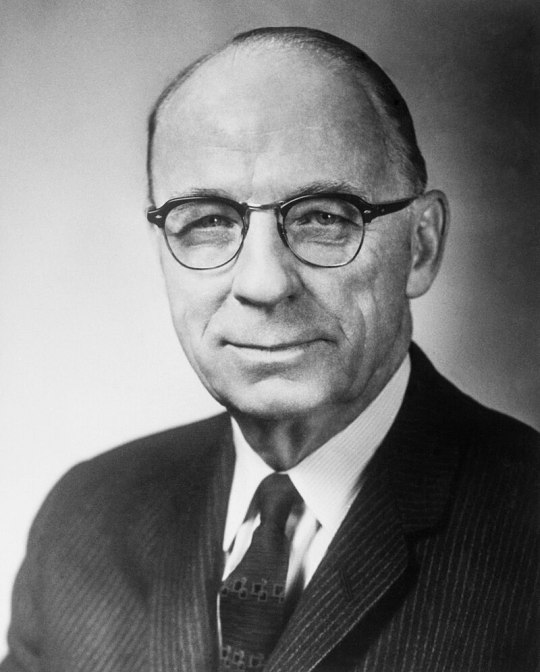
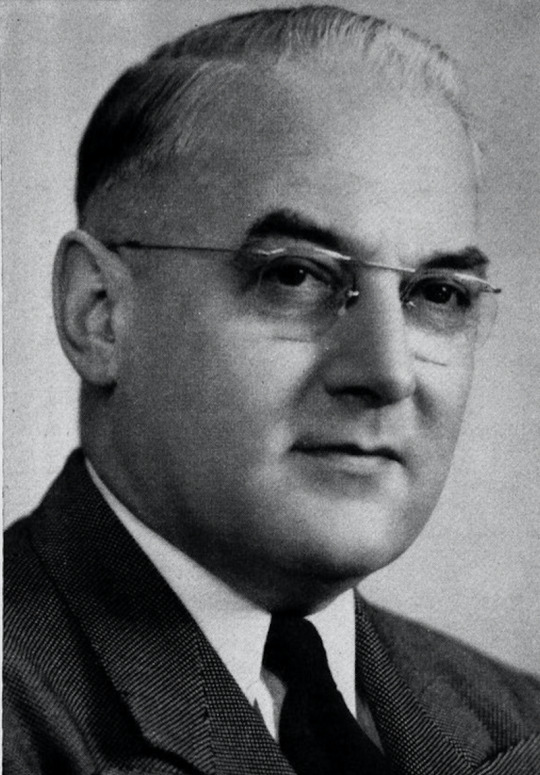
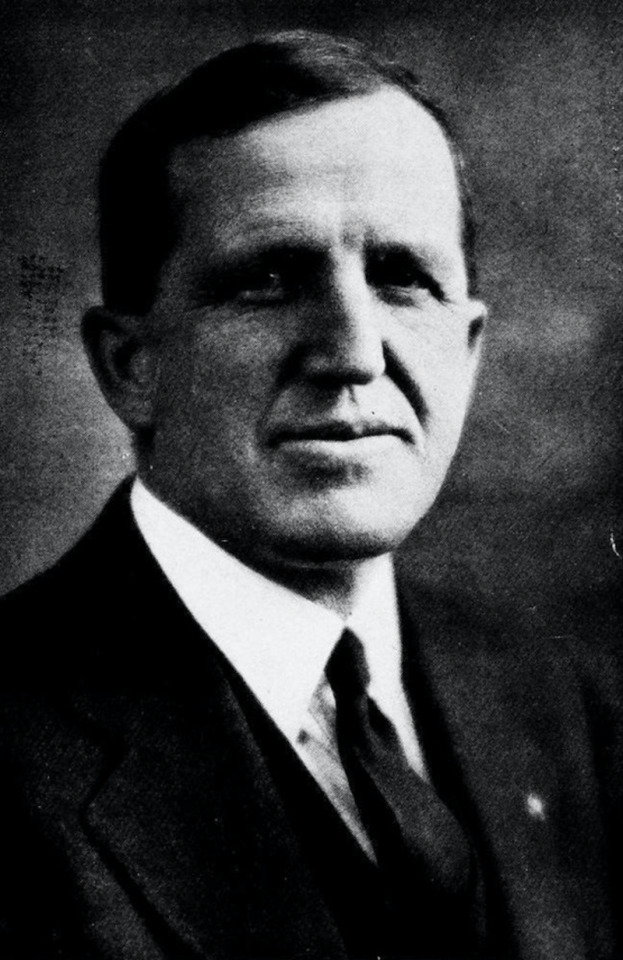


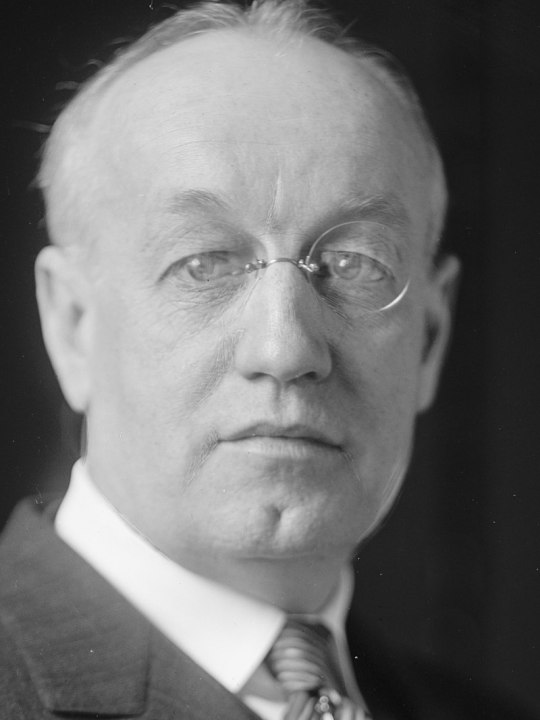
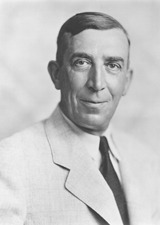

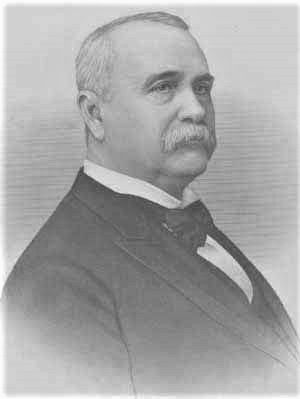
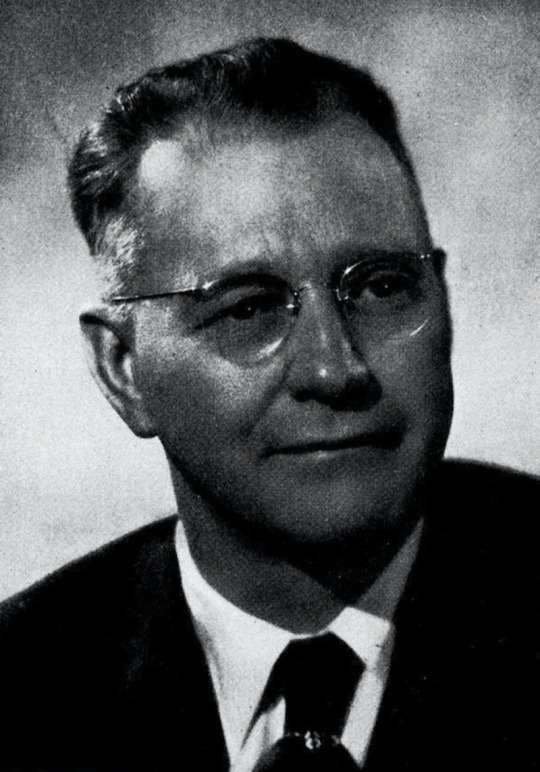

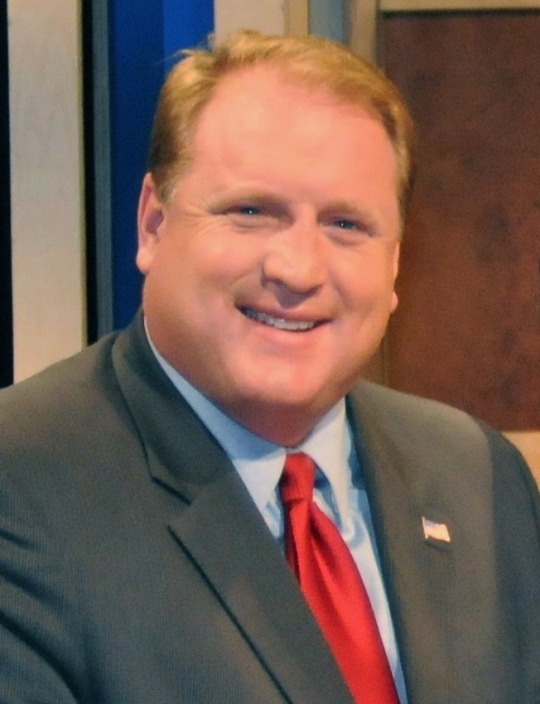
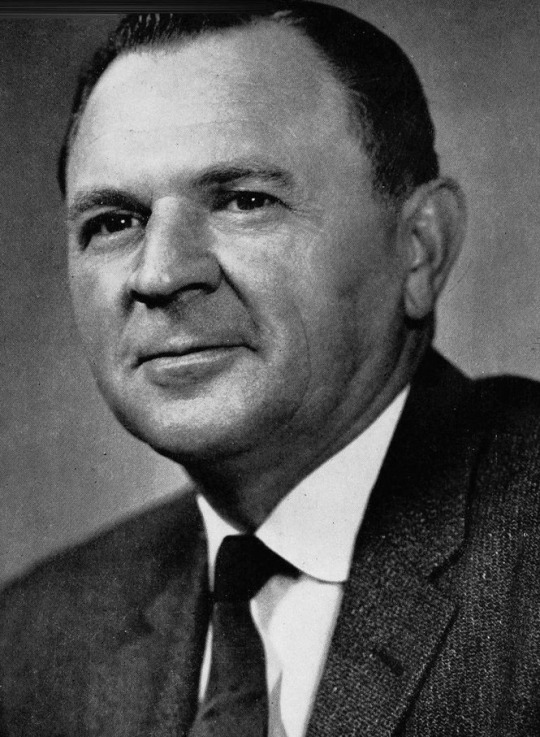
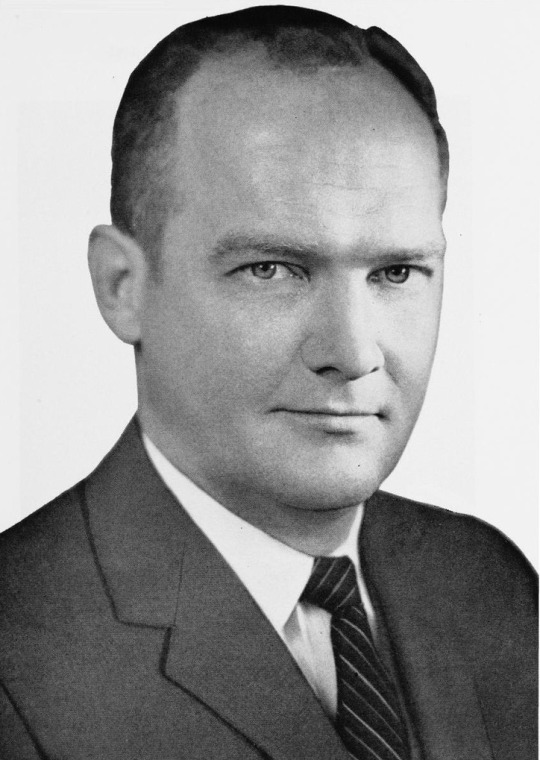

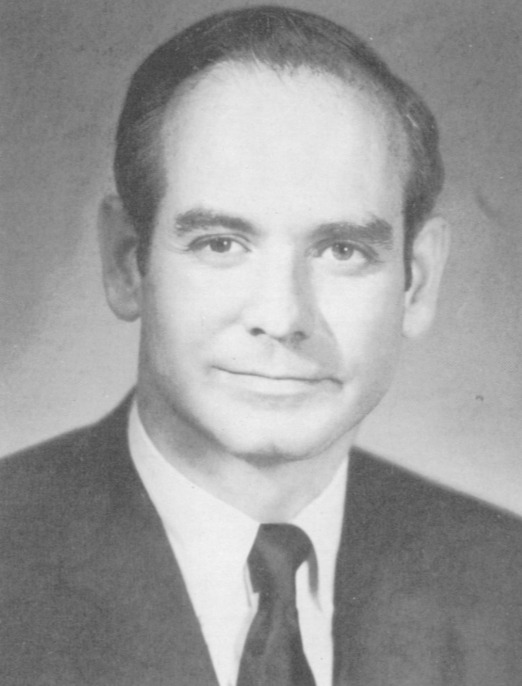

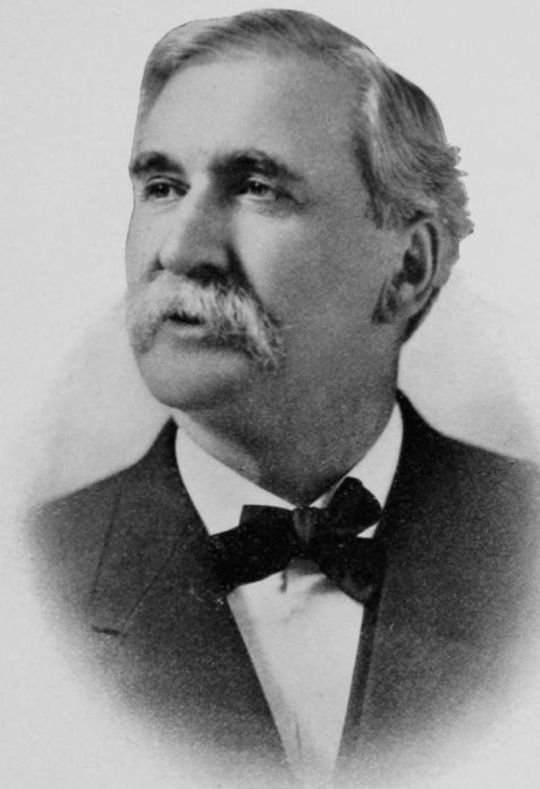
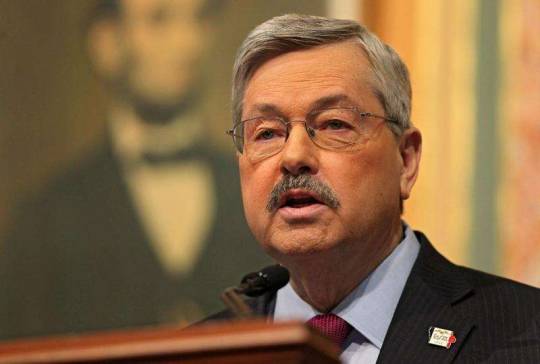
Belated Governor DILF entry that I started doing on the day of the caucus.
#Tom Vilsack#Bourke B. Hickenlooper#Beryl F. Carroll#L.M. Shaw#Clyde L. Herring#Dan W. Turner#George A. Wilson#Francis M. Drake#William S. Beardsley#Chet Culver#Harold Hughes#Horace Boies#Herschel C. Loveless#Leo Elthon#Leo Hoegh#Norman A. Erbe#Robert D. Blue#Robert D. Ray#Terry Branstad#Warren Garst#GovernorDILFs
14 notes
·
View notes
Text
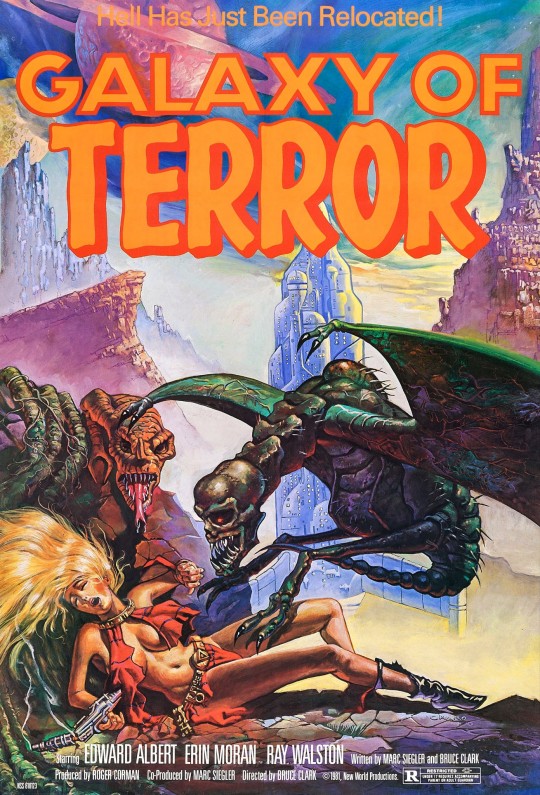
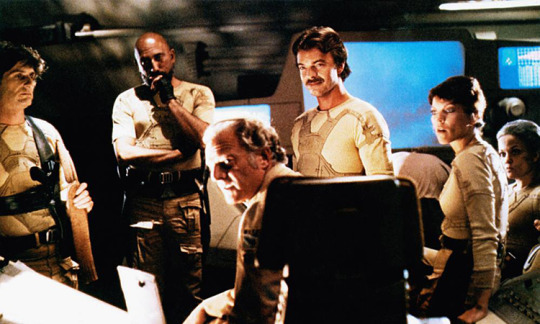

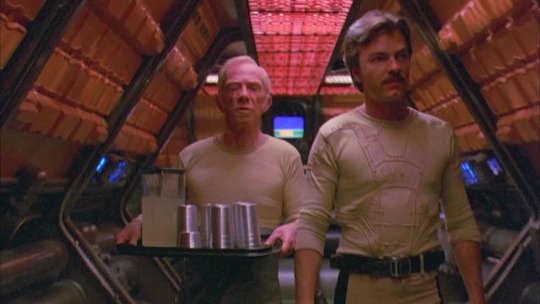

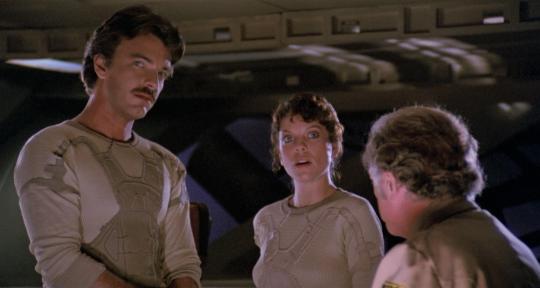
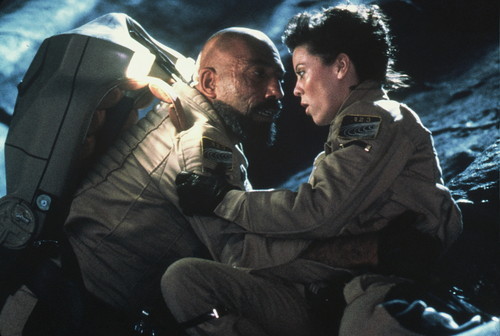



Galaxy of Terror (1981)
"Aren't you afraid?"
"Too scared to be."
#galaxy of terror#american cinema#sci fi film#1981#bruce d. clark#marc siegler#edward albert#erin moran#ray walston#bernard behrens#zalman king#robert englund#taaffe o'connell#sid haig#grace zabriskie#jack blessing#mary ellen o'neill#kenny myers#barry schrader#roger corman#perhaps most notable for the future big names who worked on this in various capacities; you've got a pre Freddie Rob Englund in the cast as#well as soon to be director Zalman‚ youve got James Cameron doing 2nd unit stuff and production design‚ Bill Paxton was the set dresser (!)#future oscar winner Bob Skotak doing visual fx and Wes Craven's future wife and film producer Iya Lubunka making prosthetics and possibly#(depending on who you believe) body doubling for one of the more graphic scenes of uh.. hm. well it's a.. you gotta see it ig‚ but it's#pretty tasteless and gratuitous. anyway. Corman himself was responsible for adding the more extreme sequences against the directors wishes#(a familiar story‚ see also Humanoids from the Deep) but all griping aside i was surprised by how into this i was. the first act in#particular does a brilliant job of quick‚ intense world building and setting up various intriguing mysteries for the viewer#the middle section fumbles it a little‚ but the design is deeply impressive and clearly something Cameron carried into Aliens#like im not even joking‚ this nonsense space slasher clearly had an unlikely impact on space horror cinema that came after#including Event Horizon and the Alien sequels‚ perhaps even a tiny but on Carpenter's The Thing. or maybe it's all coincidence. who knows!
65 notes
·
View notes
Text







50 Years of Scorsese & De Niro
Goodfellas Behind The Scenes
Bobby D, Marty M, Joe P, Ray L, Paul S, & Lorraine B
#robert de niro#bobby d#martin scorsese#50 years of scorsese & de niro#goodfellas behind the scenes#joe pesci#paul sorvino#ray liotta#lorraine bracco
11 notes
·
View notes
Text
Top Ten PCT Books
There is an overwhelming abundance of books in the pantheon of PCT literature. I have read many over the past 40+ years (often in the process of developing the three anthologies . . . see #2). I have given some thought recently to my Top Ten PCT books. It is a rather arbitrary list certainly influenced by my own preferences and the reality that many of the early voices were male. I am confident that I have missed some worthy choices and would invite readers to submit their favorites.
RH
The Pacific Crest Trail: Exploring America's Wilderness Trail by Mark Larabee and Barney Mann
My rationale for putting this beautiful coffeetable book at the top of my list is that it captures the spectacle of the PCT in photos, includes essays about the history and culture of the trail, and rounds things out with profiles of the people of the trail. I never tire of flipping through and relishing the photos. There are other excellent books of photos from the PCT, but this is a comprehensive resource under one cover.

2. The Pacific Crest Trailside Reader: California; The Pacific Crest Trailside Reader: Oregon and Washington (Edited by Rees Hughes and Corey Lewis) and Crossing Paths: A Pacific Crest Trailside Reader (Edited by Rees Hughes and Howard Shapiro)
While I admit to a certain bias, the 150 short stories captured in this trilogy reflects the full range of PCT people and experiences in, for the most part, their own words. It really is a 'must read' for those interested in a full appreciation of the PCT. It also draws from many of the individual accounts of walking the trail that would otherwise dominate your bookshelves.

3. The Great Alone by Tim Voors
Of all of the many accounts of walking the PCT, why did I elevate this particular account? I have read countless memoirs written by PCT hikers. They are all deeply personal accounts of hiking the same 2,650 miles, generally with a few variations here and there. Most are enjoyable, a few are tedious or self-important, but virtually all suffer from following a similar formula. Any of you who have read even a handful know the formula – preparing for the trail, physically and mentally adjusting to trail life through the desert and the High Sierra, marveling at trail culture, persevering through the monotonous Northern California and Oregon stretch, and the race to the end through the wet and often white spectacular North Cascades. It is delightful to find a memoir that carves its own unique path. Tim Voors in The Great Alone has done just that.
Throughout his time on the trail, Voors spends some serious time devoted to reflection that he gracefully weaves into the story of his walk north. He manages to share his introspection in a way that never seems tedious and rarely seems forced. What if I die tomorrow? Quitting. Restructuring your life around your dreams. Do I believe in God? Much of what he learns comes from the wisdom of hikers a generation younger than him. I believe his honesty and candor makes his reflections engaging as does his self-deprecating humor. It may help that Voors shares my own belief that walking the PCT is richest when it includes a spiritual experience where hikers think about themselves and the world around them and their role in the world.
Voors, who is Dutch, demonstrates his command of English throughout the book. In addition, his simple watercolor paintings (he is aptly known as ‘Van Go’ on the trail) and the photos he has included enrich the total experience of reading the book. I would rarely comment on the choice of paper used in printing the book, but I really liked the thick, textured paper (which seems to be a trademark of the publisher, Gestalten). The graphics throughout the book are exceptional and add measurably to the quality of the reading experience.

4. Wanderlust: A History of Walking by Rebecca Solnit or On Trails: An Exploration by Robert Moor
Pick one of these two books. Although Moor talks about the PCT in On Trails, both Solnit and Moor offer the best homage to 'walking' among the many philosophical treatments available. They are the books I wish I had written about pedestrianism.
5. The High Adventure of Eric Ryback by Eric Ryback
Ryback's account of his 1970 hike from Canada to Mexico on a trail that was often just a concept elevated the profile of the PCT. Read by dreamers like me (and thousands of others), Ryback's book was my first exposure to the PCT and the impetus for me to walk the PCT. It captured the spirit of adventure that has drawn hikers to the trail in the decades since.
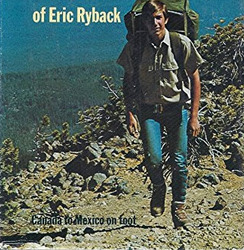
6. A T'hru-Hikers Heart: Tales on the Pacific Crest Trail by Ray "No Way" Echols
Ray Echols collection of essays, compiled following Ray's tragic death along Deep Creek by his widow, Alice Tulloch, is also not your typical PCT account. I have kept this book in my collection because I find the depth of Ray's experiences, the strength of his feeling, the wisdom of his writing so exceptional. In it all, he manages to capture why I return to the trail year after year.

7. Seven Summers (and a few bummers) by Bob Welch
As I mentioned before, I am disinclined to include accounts of walking the Pacific Crest Trail that begin in the desert south and proceed linearly and predictably. However, I found Bob Welch’s account of completing the PCT with his brother-in-law, Glenn, refreshingly bumpy (and very real). Written with self-deprecating humor, Seven Summers seems part Bill Bryson’s A Walk in the Woods, part Barney Mann’s Journeys North, but all uniquely the Oregon Boys (Bob and Glenn’s trail name). The Oregon Boys dealt with hypothermia, fire, quitting (and starting again), the realities of work and family, snow, injury, and more, but in the course of 11 years they finished the PCT.
The book captures the special challenge of being a section hiker. As Welch observes near the end of the book, section hiking necessitated thirty-two travel days,“ just getting to and from that trail, that encompassed more than 17,000 miles, just so I could hike 2,650 miles.” He continued, “Some 180 miles of extraneous hiking miles [were] needed to get to and from trail heads; to follow “workarounds” because of fire closures; to get off-trail water and food; and to return to points that we overshot”.
Welch, a lifelong journalist and author of a number of other books, makes the book an enjoyable read. By the end of the book you feel a special connection with Bob and Glenn and their spouses. Seven Summers touches on the changing nature of the PCT, profiles a number of hikers on the trail, captures the essence of trail culture, and the PCT experience. In addition, it is a pleasure to read a well-crafted book. And only a few times did I tire of Welch’s humor.
I appreciated the inclusion of photos, maps, special charts (“Breakdown of the 17 Section Hikes”, how he put everything in his pack, his equipment list, a best and worst list, the PCT experience by the numbers, etc.), and some delightful illustrations by Don White.
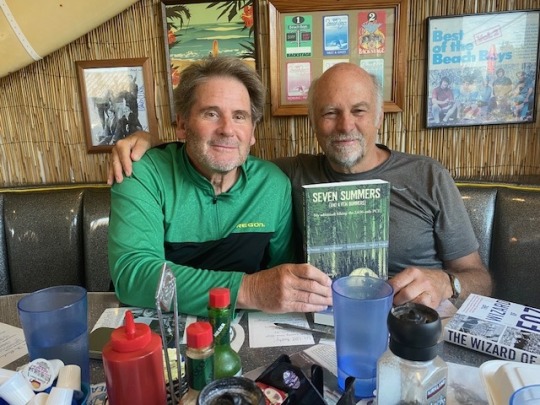
8. The Pacific Crest Trail: A Visual Compendium by Joshua M. Powell
This is another unique and very entertaining treatment of the PCT. I loved his collection of lists and notes of every possible (and some I never would have thought of) aspect of a thru-hike on the PCT. Powell shows us the various flora and fauna he discovered along the trail. Everything from pileated woodpecker to lupine. Paintbrush to rattlesnake and many, many more. He goes on to create illustrations of notable buildings found in trail towns and illustrates an alphabet from scripts seen along the trail. He describes his mental struggles, landmarks, weather, and specific trail notes. There are numerous easy to read charts and graphs and stunning graphics. Everything from elevations of various sections to traits shared by thru-hikers and characters in Steinbeck novels.

9.Journeys North by Barney 'Scout' Mann
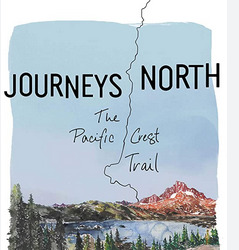
Scout's treatment of his PCT thru-hike experience is the most traditional of those included in my top 10 list. He has the advantage of a long and rich association with the trail . . . as a hiker (along with his wife Sandy . . . aka 'Frodo'), as a long-time devoted trail angel, as a PCT board member, as an advocate for the PCT and for the national trail system. That history gives his account additional 'heft' often missing in other accounts.
10. Thru-Hiking Will Break Your Heart by Carrot Quinn

Carrot Quinn authored one of my favorite PCT blogs/journals; one I followed religiously on her trek north. Cleverly written and insightful, I think I appreciated it even more because Carrot's take on the experience was so different from my own. Written with humor and, at times, a biting insight, I think that Carrot's writing helped me take my own PCT experience a little less nobly and self-importantly.
Other Contenders: I really like Suzanne Roberts's Almost Somewhere: 28 Days on the John Muir Trail, but did not include it because it is limited to the JMT. Roberts is a wonderful writer. I also enjoyed Gail D. Storey's I Promise Not to Suffer: A Fool for Love Hikes the Pacific Crest Trail. It is clever and fun but did not make the cut because, like Cheryl Strayed, Gail walked less than half of the PCT. I also tend to discount books written about fast-walking the trail because, while I admire the tenacity and strength for such an achievement, I am biased against those that don't savor the PCT experience.
#Carrot Quinn#Suzanne Roberts#Gail D. Storey#Barney Mann#Mark Larabee#Tim Voors#Rebecca Solnit#Robert Moor#Bob Welch#Rees Hughes#Eric Ryback#Howard Shapiro#Corey Lewis#Joshua Powell#Ray Echols
6 notes
·
View notes
Text

Tina Cordova and her mother, Rosalie, relax at Bonito Lake, New Mexico, in 1960. Cordova says the lake—which lies within the estimated radioactive fallout zone—was a water source for area towns, including Carrizozo, Alamogordo, and Ruidoso. Courtesy of Anastacio and Rosalie Cordova
U.S. Lawmakers Move Urgently to Recognize Survivors of the First Atomic Bomb Test
The 1945 Trinity test produced heat 10,000 times greater than the surface of the sun and spread fallout across the country.
— By Lesley M.M. Blume | Published September 21, 2021 | July 29th, 2023
Barbara Kent joined Carmadean’s dance camp in the desert near Ruidoso, New Mexico, in the summer of 1945. During the day, she and nine other girls learned tap and ballet. At night, they slept in a cabin by a river. Early in the morning on July 16, 1945, Kent says that she —then 13—and the other campers were jolted out of their bunk beds by what felt like an enormous explosion nearby. Their dance instructor rushed the girls outside, worried that a heater on the premises might have burst.
“We were all just shocked … and then, all of a sudden, there was this big cloud overhead, and lights in the sky,” Kent recalls. “It even hurt our eyes when we looked up. The whole sky turned strange. It was as if the sun came out tremendous.”
A few hours later, she says, white flakes began to fall from above. Excited, the girls put on their bathing suits and, amid the flurries, began playing in the river. “We were grabbing all of this white, which we thought was snow, and we were putting it all over our faces,” Kent says. “But the strange thing, instead of being cold like snow, it was hot. And we all thought, ‘Well, the reason it’s hot is because it’s summer.’ We were just 13 years old.”
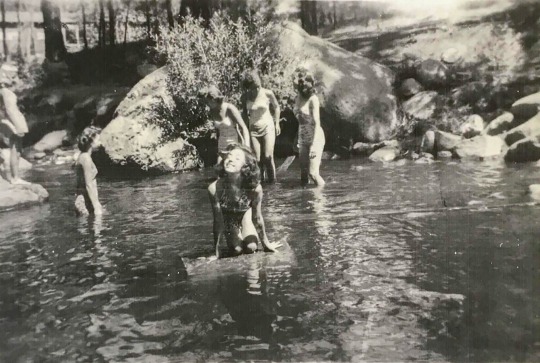
Thirteen-year-old Barbara Kent (center) and her fellow campers play in a river near Ruidoso, New Mexico, on July 16, 1945, in the hours after the bomb’s detonation. Fallout flakes drifted down that day and for days afterward. “We thought [it] was snow," Kent says. “But the strange thing, instead of being cold like snow, it was hot." Courtesy of Barbara Kent
The flakes were fallout from the Manhattan Project’s Trinity test, the world’s first atomic bomb detonation. It took place at 5:29 a.m. local time atop a hundred-foot steel tower 40 miles away at the Alamogordo Bombing and Gunnery Range, in Jornada del Muerto valley.
The site had been selected in part for its supposed isolation. In reality, thousands of people were within a 40-mile radius, some as close as 12 miles away. Yet all those living near the bomb site weren't warned that the test would take place. Nor were they evacuated beforehand or afterward, even as radioactive fallout continued to drop for days.
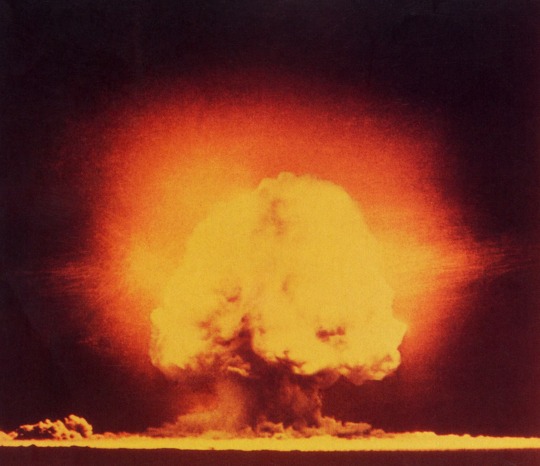
The Trinity test took place at 5:29 a.m. local time on July 16, 1945. It was three to five times more powerful than its creators had anticipated, producing heat 10,000 times greater than the surface of the sun. The explosion cloud may have reached a height of 70,000 feet. Photograph By Science History Images/ Alamy
In 1990, the U.S. Congress passed the Radiation Exposure Compensation Act (RECA), which has since dispensed over two billion dollars to more than 45,000 nuclear workers and “downwinders”—a term describing people who have lived near nuclear test sites conducted since World War II and may have been exposed to deadly radioactive fallout.

But those exposed during the Trinity test and its aftermath have never been eligible.
For years, Senator Ben Ray Lujan, a Democrat from New Mexico, and other members of Congress have attempted to amend RECA, due to expire on July 11, 2022. In light of this looming deadline, on September 22, Lujan, along with Senator Mike Crapo, Republican of Idaho, and eight co-sponsors introduced Senate bill S. 2798 to extend RECA and expand it to make those in the estimated Trinity fallout zone eligible, as well as other downwinder communities in Colorado, Idaho, and Montana. The proposed legislation also would expand eligibility for people who have worked in uranium mines and mills or transported uranium ore. Also on September 22, Representative Teresa Leger Fernandez and 15 co-sponsors introduced a similar bill, H.R. 5338, in the House.

The plutonium bomb—nicknamed the Gadget—was set atop this hundred-foot steel tower, which vaporized in the explosion. "From the Trinity test,” a 2010 Centers for Disease Control and Prevention report noted, “it was learned that detonating a nuclear explosive device [that] close to the ground increases the radioactive fallout from the event." Photograph Via CORBIS/Getty
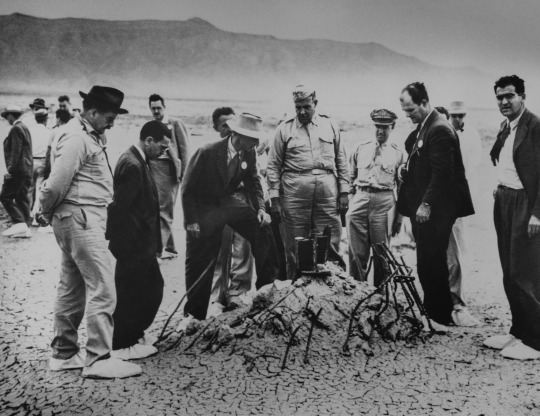
Manhattan Project leaders—including General Leslie Groves (center) and, to his right, physicist J. Robert Oppenheimer—scrutinize the remnants of the tower at ground zero. Upon seeing the detonation, Oppenheimer thought of a line from the Bhagavad Gita: "Now I am become Death, the destroyer of worlds." Photograph Via CORBIS/Getty
“The fact that there had not been a recognition of the impact of the very first atomic detonation in New Mexico was really simply wrong,” says Representative Teresa Leger Fernandez, a Democrat from New Mexico and co-sponsor of the House bill. “We hear their voices, we see their pain, and we must act.”
This is an especially urgent and consequential moment for those living in Trinity’s estimated fallout zone—some of whom have been waiting 76 years to be acknowledged. “We have been denied justice long enough,” says Bernice Gutierrez, who was a newborn when the bomb exploded. Her family lived in Carrizozo, about 50 miles from the blast site. “It’s not like we haven’t given our all to our country. What more can you give?”
‘A Very Serious Hazard’
The blast from the plutonium implosion device, nicknamed the Gadget, produced heat 10,000 times greater than the surface of the sun and was significantly more powerful than its creators had expected. It carried aloft hundreds of tons of irradiated soil and sent a mushroom cloud up to 70,000 feet in the sky. In this experimental atomic detonation, only three of the 13 pounds of plutonium at the bomb’s center underwent fission. The rest dispersed in the fallout cloud.
A tiny fraction of that three pounds of plutonium—about the weight of a raisin—was enough to release “three times the destructive force of the largest conventional bomb used in World War II,” says Robert Alvarez, associate fellow at the Institute of Policy Studies and former senior policy advisor to the U.S. Secretary of Energy. (The Gadget released an explosive force equivalent to about 21,000 tons of TNT.)
Right after detonation, the cloud divided into three parts. One part drifted east, another to the west and northwest, and the rest to the northeast, across a region a hundred miles long and 30 miles wide, “dropping its trail of fission products” the entire way, according to a 2010 report by the Centers for Disease Control and Prevention (CDC). The fallout eventually spread over thousands of square miles and was detected as far away as Rochester, New York.
Nineteen counties in New Mexico were in the downwind area, including 78 towns and cities, and dozens of ranches and pueblos. Radiation levels near homes in some “hot spots” reached levels “almost 10,000 times what is currently allowed in public areas,” according to the CDC.
“There is still a tremendous quantity of radioactive dust floating in the air,” wrote Stafford Warren to U.S. Army General Leslie R. Groves, head of the Manhattan Project, five days after the blast. Warren, the project’s chief medical officer, added that “a very serious [radiation] hazard” existed within a 2,700-square-mile area downwind of the test.
He also advised that future atomic tests be done only where there were no people within a radius of 150 miles. (Nearly half a million people in New Mexico, Texas, and Mexico lived within a 150-mile radius of the Trinity test.)
“We didn’t know what the hell we were doing,” Louis Hempelmann—the director of the Los Alamos Health Group, a team tasked with managing radiation within the Manhattan Project—reflected in a 1986 interview uncovered by sociologist James L. Nolan, Jr., in his book Atomic Doctors. “Nobody had had any experience like this before, and we were just hoping that the situation wouldn’t get terribly sticky.”
The leaders of the Manhattan Project knew that civilians had been “probably overexposed,” Hempelmann said. “But they couldn’t prove it and we couldn’t prove it. So we just assumed that we got away with it.”
Many civilians living within the estimated fallout zone were unwittingly exposed and sickened. According to Alvarez, even minute quantities of plutonium can inflict disease. “Particles of plutonium less than a few microns in diameter can penetrate deep in the lungs and lymph nodes and can also be deposited via the bloodstream in the liver, on bone surfaces, and in other organs,” he says. “If inhaled, extremely small amounts can lead to cancer.”
How is it, asks Senator Lujan, that RECA covered people living downwind of the Nevada Test Site but left out “the community where the first nuclear bomb was tested on American soil? There’s not been a good answer given to me nor to the downwinders in New Mexico. There’s no question of the exposure that resulted from the Trinity test.”
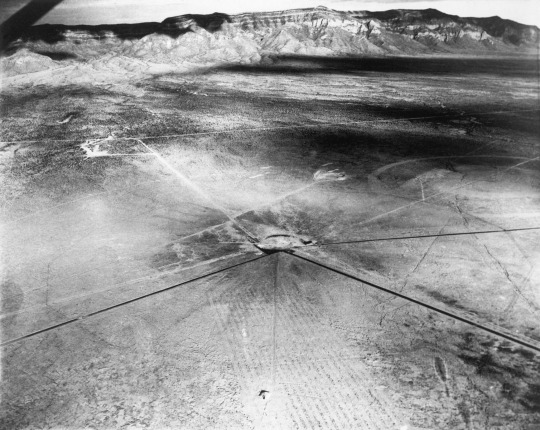
The explosion seared the desert sand surrounding the tower into a green, glass-like substance, named Trinitite. Photograph Via Bettmann/Getty
Something Felt Terribly Awry
Several people living near the test site later reported that they thought they were experiencing the end of the world. The strange, snowlike substance that fell from the sky for days coated everything: orchards, gardens, livestock, as well as cisterns, ponds, and rivers—the main sources of drinking water because local groundwater was “unsuitable for human consumption,” according to the 2010 CDC report.
One family in Oscuro, New Mexico, about 45 miles from the site, hung wet bedsheets in their windows against the fallout. They felt that something was terribly awry when their chickens and their dog died. Thirty miles away from ground zero, along Chupadera Mesa, burns appeared on the hides of cattle, whose fur eventually grew back gray and white in the burned patches.
A health care provider in Roswell, a hundred miles away, noted a surge in infant deaths there—35 in August 1945 alone. When she wrote to Warren, stating her concerns, his medical assistant replied that there were no “pertinent data” and assured her that “the safety and health of the people at large is not in any way endangered.”
“They Lied To Us. I Didn’t Learn The Truth Until Years Later.” — BatbaraKent, Trinity Test Survivor
For General Groves, getting the bomb ready—in secrecy—for wartime use had trumped all other considerations, including public safety.
Yet he realized that a blast whose flash was seen in at least three states and two countries could not be wholly concealed. He ordered the commanding officer of the Alamogordo Air Base to feed a cover story to the Associated Press that “a remotely located ammunition magazine containing a considerable amount of high explosives and pyrotechnics exploded.” There had been, the report went on, “no loss of life or injury.” Local newspapers reprinted the announcement without challenge.
Barbara Kent recalls that the day after the explosion, her camp’s dance instructor took the girls into Ruidoso, where government officials were to make an announcement about the source of the blast.
“It was so crowded downtown—everyone was shoulder to shoulder,” Kent says. “What they told us—there was an explosion at a dump. They said, ‘No one worry about anything, everything’s fine, just go along with your own business.’ Everyone was confused. Some people believed it, but some people thought they couldn’t imagine that a dump explosion would do this." She continues: "They lied to us. I didn’t learn the truth until years later.”
As time passed, Kent says she began to hear disturbing reports that her fellow campers were falling ill. By the time she turned 30, she says, “I was the only survivor of all the girls at that camp.” She adds that she has suffered from lifelong illnesses: She had to have her thyroid removed and has survived several forms of cancer, including endometrial cancer and “all kinds of skin cancers.”
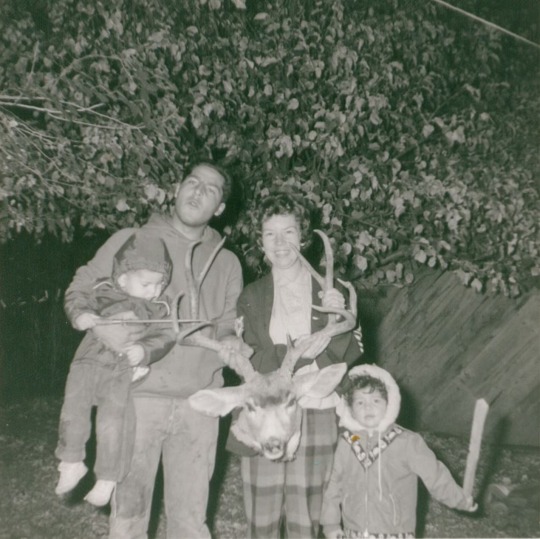
In this photograph from 1962, three-year-old Tina Cordova (bottom right) is pictured with her father, Anastacio (holding her baby brother, Matthew), and mother Rosalie. The young family lived in Tularosa, about 40 miles from the blast site. Everything they ate, Tina recalls, “was raised or grown or hunted," adding that the bomb’s “ash got everywhere, in the soil, in the water—everything was contaminated." She says her mother and father developed cancers, and she was diagnosed with thyroid cancer when she was 39. Courtesy of Anastacio and Rosalie Cordova
Tina Cordova is a fifth-generation resident of Tularosa, about 40 miles from the blast site. Thanks to an extensive ditch system in the area, the town was an oasis in the desert, and Cordova’s family’s home, like many others, had an orchard and garden.
“You could literally go out into your yard in the summer and eat peaches, apricots, cherries, figs, dates, pecans, walnuts—everything you could think of,” she says. Local people harvested and canned their fruit and collected rainwater for drinking from rooftop cisterns. Milk came from local dairies. People made their own butter and butchered farmyard animals or hunted wild animals for meat, including deer, quail, rabbit, and pheasant.
“Everything that people were consuming in 1945 was contaminated,” Cordova says. “But they didn’t know [the fallout was] dangerous. They went about their lives.”
After the test, she says, health problems began to plague her family, all of whom lived in and around Tularosa. According to Cordova, two of her great-grandfathers died of stomach cancer, and both of her grandmothers developed cancer. Two aunts had breast cancer, and one died from it. A cousin developed a brain tumor. Her mother had mouth cancer, and her sister has skin cancer. Her father, who was four at the time of the blast, suffered from various cancers, including prostate cancer and tongue cancer. Doctors had to remove part of his tongue and his lymph nodes. The cancer eventually spread to his neck and became inoperable. Cordova says he weighed about 125 pounds at his death in 2013 at the age of 71. She says that she herself was diagnosed with thyroid cancer in 1997, when she was 39.
‘When Are They Going To Hold Our Government Accountable?’
After the U.S. leveled Hiroshima with a uranium bomb on August 6, 1945, the secret history of the creation of atomic weapons was released and widely publicized. Many New Mexicans now realized that the blast that had shattered their windows and blanketed their homes in warm ash was not, after all, an ammunition dump explosion. Although they still hadn't been informed by the government about the nature of that ash or monitored for adverse health effects, they were encouraged to be proud of the part they’d unknowingly played in bringing about the dramatic new atomic age.
“When I was a child, the government fed us propaganda about how much pride we should take in the part we played in ending World War Two,” Cordova says. “We still did not know what that meant from a health consequence perspective. Our mom actually took us to the [Trinity] site for a picnic. We brought home as much Trinitite as we could and played with it.” (The Trinity Site is now a National Historic Landmark, open to visitors twice a year, and anyone can go online and buy radioactive fragments of Trinitite—a green glass created from sand and other materials that melted in the immediate blast zone.)

The U.S. Army erected this monument at ground zero in 1965. Ten years later, the National Park Service designated Trinity Site as a National Historic Landmark. It’s open to visitors twice a year, on the first Saturdays in April and October. Photograph By Tony Korody, SYGMA Via Getty
In 2004, Cordova read a letter from another Tularosa resident, Fred Tyler, to the editor of a local newspaper. She says that the letter changed her life. “He said, ‘When are they going to hold our government accountable for the damage they did to us?’ ” Cordova says. “I called him and said, ‘I feel the same way you do. It’s time to start an organization to more fully push the government about this issue.’ ”
In 2005, Cordova and Tyler founded the Tularosa Basin Downwinders Consortium (TBDC) as an advocacy organization for Trinity test downwinders.
At that time, she recalls, they weren’t aware that the Radiation Exposure Compensation Act had been in place for 15 years and already had provided onetime, $50,000 compensation to other downwinders who “may have developed cancer or other specified diseases after being exposed to radiation from atomic weapons testing or uranium mining, milling, or transporting.” Downwinder eligibility initially was limited to those within specified areas around the Nevada Test Site, 65 miles north of Las Vegas, where a hundred aboveground tests were conducted before a moratorium on atomic testing took effect in 1992.
In 2000, an amendment to RECA expanded eligibility to include some uranium miners and millers in New Mexico. Military and government workers who were “on-site participants” in the Trinity test were also eligible for compensation, but civilian downwinders remained ineligible.
Cordova, like Senator Lujan, says she has “never been able to get a straight answer” about why civilian downwinders were excluded from the legislation: “Even from people who were serving in Congress at the time, I’ve been told, ‘Well, no one was connecting the dots that anybody was harmed.’ ”
Bill Richardson—a Democrat who served as New Mexico’s governor from 2003 to 2011 and was a representative for the state’s Third Congressional District in 1990 when RECA was enacted—says, “I don’t think there was opposition [to their inclusion], just perhaps a lack of awareness. I didn’t know about their claims until I started reading about it when I was governor, and I was sympathetic.”
To raise awareness, Cordova and her colleagues at the consortium began to gather testimonies from and distribute health surveys to downwinders who were alive at the time of the Trinity test, along with their descendants who have lived in areas surrounding the test site. To date, the consortium has collected more than 1,000 surveys, and Cordova says that 100 percent of those questioned describe adverse health conditions—from thyroid disease to brain cancer—that can result from radiation exposure. Often participants describe similar cancers that have ravaged many family members over several generations.
‘A Now-or-Never Moment’
Cordova describes this effort to extend and expand RECA as a “now-or-never moment.” Senator Mike Crapo, an Idaho Republican and co-sponsor of the Senate bill, says there’s a “dire need for Congress to extend RECA … [and] to include victims in states across the West.”
“It is beyond time for the federal government to right a past wrong that caused harm to countless innocent Americans,” he wrote in a letter on March 24, 2021, to the chairman and members of the House Judiciary Committee.
“We Hear Their Voices, We See Their Pain, and We Must Act.” — TeresaLeger Fernandez, Representative to Congress, New Mexico
“When [RECA] was first introduced, no one considered the impact on the first downwinders,” Representative Fernandez says. “But we are in a place now where we recognize an injustice when we see it.” Her family lived in San Miguel and Guadalupe Counties in New Mexico, areas of potential exposure. She says her mother and sister—both nonsmokers—died of lung cancer. Her father died of esophageal cancer, she says, and her grandmother, who grew up near the Trinity site, died of leukemia.
Fernandez and Lujan say they’re also going to push for new epidemiological and environmental studies of the Trinity test’s aftermath and possible long-term effects.
Assessing Trinity’s exact “fingerprint” based on current fallout levels is “complicated and subject to large uncertainties,” says health physicist Joseph Shonka, co-author of the 2010 CDC report. He notes that residents of New Mexico have higher positive plutonium levels in their tissues than residents of any other state but says that tracing those levels back specifically to Trinity fallout might be difficult.
New Mexicans also may have internalized plutonium from various additional sources, he says, including general global fallout, releases from New Mexico’s Los Alamos plutonium operations, and fallout that drifted down from Nevada’s Test Site. The CDC recommended prioritizing Trinity’s aftermath for future studies.
Last year, the National Cancer Institute (NCI) released its findings from a nearly seven-year study of the Trinity nuclear test. The study’s lead investigator, Steven Simon, calls it the “most comprehensive study conducted on the Trinity test and its possible ramifications for cancer risks in the estimated fallout area.”
The researchers concluded that up to a thousand people may have developed cancer from the Trinity test fallout and that “only small geographic areas immediately downwind to the northeast received exposures of any significance.” They also said that the “plutonium deposited as a result of the Trinity test was unlikely to have resulted in significant health risks to the downwind population.”
The researchers also acknowledged their study’s limitations. Calculating exposure for those alive at the time of the detonation is “complex and is subject to uncertainties,” Simon explains, “because all of the needed data is not available."
Shonka says the new NCI study “failed to address early fallout adequately.” He says he questions some of the methodology and is preparing a counter-article addressing what he says are inconsistencies with previous findings. Other critics of the NCI study say it doesn’t address ongoing family cancer clusters and the reported 1945 spike in infant deaths in the region, documented in a 2019 paper in the Bulletin of the Atomic Scientists, co-authored by Robert Alvarez.
The NCI responds that its researchers focused on exposures received among “New Mexico residents alive at the time of the test,” and that they didn’t investigate the infant mortality because it was “not a cancer effect.”
Senator Lujan calls the NCI study “limited” and says that he wants to “make sure that there’s accurate data that truly is looking at the exposure that families face.”
“How can someone say that families in proximity to a nuclear blast were not exposed?” he asks. “It goes against everything that I’ve learned and data sets that I’ve seen from different parts of the world where this has happened, whether it’s been from meltdown of nuclear energy generation facilities or where weapons were deployed.”
Lujan continues, “People died as a result of the Trinity test—that’s a fact. People are still suffering—that’s a fact. The U.S. needs to come forward to address this liability, this wrong.”
Cordova says she and her community will be closely watching the RECA bills’ progress. The new legislation asks to expand compensation for individuals from $50,000 to $150,000. But beyond financial restitution, Cordova says, they’re also hoping simply for a government apology.
“We’ve never had an opportunity to live normal lives,” she says. “They can never say that they didn’t know ahead of time that radiation was harmful or that there was going to be fallout. We don’t ask if we’re going to get cancer; we ask when it’s going to be our turn. We are the forgotten collateral damage.”
— Lesley M. M. Blume is a New York Times best-selling historian, journalist, and author of Fallout: The Hiroshima Cover-up and the Reporter Who Revealed It to the World.
#United States 🇺🇸#US Lawmakers#Atomic Bomb 💣#Survivors#Lesley M.M. Blume#Barbara Kent#Ruidoso New Mexico#Manhattan Project’s Trinity Test#Alamogordo Bombing and Gunnery Range#Jornada del Muerto Valley#U.S. Congress#Radiation Exposure Compensation Act (RECA)#Two Billion Dollars 💵#Downwinders#New Mexico’s Senator Ben Ray Lujan (D)#Senator Mike Crapo (R—Idaho)#Rep. Teresa Leger Fernandez#Colorado Idaho and Montana#General Leslie Groves#J. Robert Oppenheimer#Serious Hazard#Louis Hempelmann#Los Alamos Health Group#Sociologist James L. Nolan Jr.#Terribly Awry#Government Accountable#Trinity Site#National Historic Landmark#Bill Richardson Governor New Mexico (D)
2 notes
·
View notes
Text
Galaxy of Terror (1981)
Galaxy of Terror is a 1981 science fiction horror film that has earned its place as a cult classic, blending the eerie atmosphere of space exploration with visceral horror elements. Directed by Bruce D. Clark and produced by the legendary Roger Corman, the film is known for its low-budget production, creative special effects, and its ability to evoke a sense of dread that resonates with fans of…
#Bernard Behrens#Bill Paxton#Bruce D. Clark#Edward Albert#Erin Moran#Galaxy of Terror#James Cameron#Ray Walston#Robert Englund#Roger Corman#Sid Haig#Taaffe O&039;Connell
0 notes
Text
Iowa State Government Encouraging Refugee and Migrant Resettlement
As a native Iowan who was born and raised in the State and as a supporter of refugees and immigrants, I was pleasantly surprised to learn from an article in the New York Times that Iowa’s state government has adopted and is implementing various programs to encourage these people’s resettlement in the State. [1] These conclusions were corroborated by that article and the preliminary research…
View On WordPress
#Afghan Adjustment Act#David Oman#Governor Kim Reynolds (Iowa)#immigration#Iowa Department of Health and Human Services#Kristie DePena#Niskanen Center#refugees#Robert D. Ray (former Iowa Governor)#Robert Leonard#State of Iowa#Terry Branstad (former Iowa Governor)#U.S. Department of Homeland Security (DHS)#U.S. Senator Charles Grassley (Iowa)#U.S. Senator Ron Johnson (WI)
0 notes
Text
'National Lampoon's Christmas Vacation' Movie and 4K/Blu-ray Review
‘National Lampoon’s Christmas Vacation’ Movie and 4K/Blu-ray Review
The following review was written by Ultimate Rabbit correspondent, Tony Farinella. “National Lampoon’s Christmas Vacation” is considered a Christmas classic to many film buffs. I vaguely remember watching it back in the day and even a few years ago. Of course, everyone knows about Cousin Eddie and his antics, as people usually love to dress up like the character along with Clark Griswold. …

View On WordPress
#1980&039;s Movies#1989 Movies#4K#4K Ultra HD#Beverly D&039;Angelo#Blu ray#Chevy Chase#Christmas Movies#Christmas Vacation#Comedy#Diane Ladd#Doris Roberts#Holiday Movies#Hughes Entertainment#Jeremiah S. Chechik#John Hughes#Johnny Galecki#Julia Louis Dreyfus#Juliette Lewis#National Lampoon#National Lampoon&039;s Christmas Vacation#National Lampoon&039;s Vacation#Randy Quaid#Sam McMurray#Tony Farinella#Warner Brothers
0 notes
Text

Here’s Why Everyone Is Talking About A Pirate Drama That Ended In 2017
Black Sails has been described as Game of Thrones with pirates
If Black Sails kicked off in 2020 instead of 2014, it certainly would have thrown fuel on the raging fire that was TikTok’s sea shanty obsession. The reality is that this TV series aired on Starz from 2014 for four seasons, coming to a close in 2017. So why is everyone talking about it now, a decade after it began?
Black Sails is coming to Netflix very soon, triggering its fans to emerge from the woodwork and promote the show online. ‘I am SO excited for people who’ll be watching this show for the first time,’ one user wrote, with many others recommending the series to fans of Game of Thrones. With House of the Dragon still a few months away, here’s why you should tune into Black Sails this month.
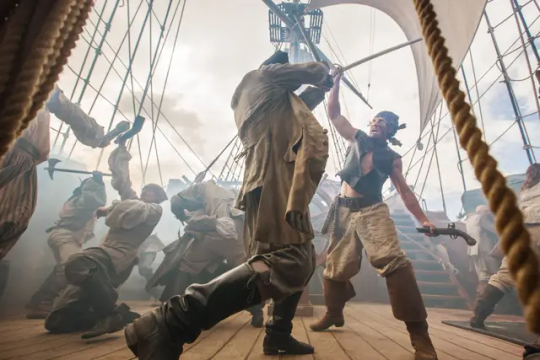
New To Netflix: Black Sails
What Is Black Sails About?
Black Sails transports us back to 1715 – aka the Golden Age of Piracy. Set in New Providence, an island in the Bahamas, we meet the feared Captain Flint (Toby Stephens) who brings a new younger crew member into the fold (‘Long’ John Silver, played by Luke Arnold) as his crew continues to fight for survival and negotiate their space on the island.
Is Black Sails Based On A Book?
Black Sails was written as a prequel to Robert Louis Stevenson’s classic novel, Treasure Island (1883).
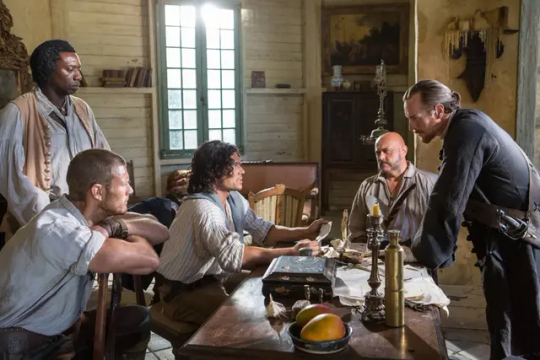
Is It Based On A True Story?
While Black Sails isn’t based on a true story, it does trace real events. The first season focuses on the hunt for the Spanish treasure galleon Urca de Lima, a real ship that sank in 1715 near Fort Pierce in Florida (where it still lies). Season two traces the fallout of Urca de Lima’s treasure being stranded in Florida, strictly guarded by Spanish soldiers while pirates prowl the shores. The subsequent third and fourth seasons then look at the war for the control of New Providence between the pirates and the British Empire – a la Pirates of the Caribbean.
Likewise, some of the characters are based on real people. Real pirates fictionalised in the show include:
Blackbeard (Ray Stevenson)
Anne Bonny (Clara Paget)
Benjamin Hornigold (Hakeem Kae-Kazim)
Jack Rackham (Toby Schmitz)
Charles Vane (Zach McGowan)
Ned Low (Tadhg Murphy)
Israel Hands (David Wilmot)
Meanwhile, Captain Woodes Rogers (Luke Roberts) – who represents the British Empire in seasons three and four – is based on a real English sea captain and slave trader, and subsequently the first Royal Governor of the Bahamas.
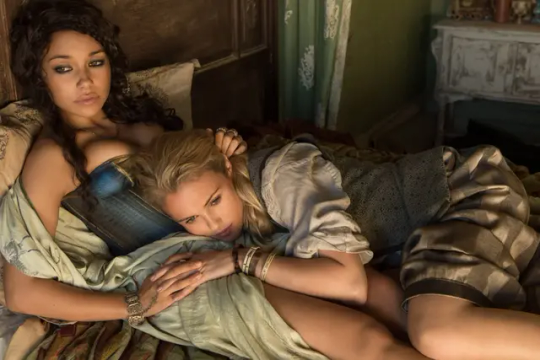
Was Captain Flint A Real Pirate?
Captain Flint is a fictional character who was first created by Robert Louis Stevenson in Treasure Island. He has since appeared in multiple works of fiction, including A. D. Howden Smith’s Porto Bello Gold (1924), John Drake’s Flint and Silver (2008), Pieces of Eight (2009) and Skull and Bones (2010), and J. M. Barrie’s Peter and Wendy (1904).
Where Was Black Sails Filmed?
Black Sails was filmed in Cape Town, South Africa, mainly inside at Cape Town Film Studio. Because the real city is so different today than it was in the 1700s, Nassau – the capital of the Bahamas, located on New Providence island – was built from scratch in a studio over a period of four months, as were two large water tanks to house the series’ two ships. Some scenes were filmed outside in and around Cape Town when new terrain was required, but most of the series was filmed on set.
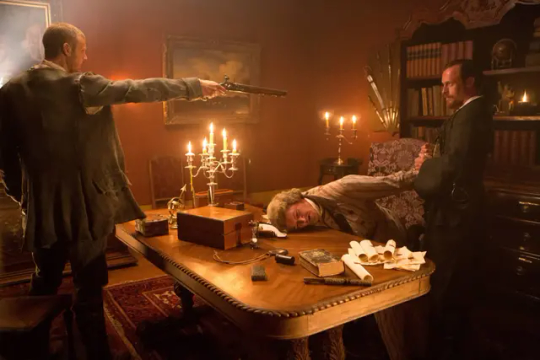
The Cast
The cast of Black Sails is incredibly large, but key characters to know include:
Toby Stephens as James McGraw/Captain Flint
Hannah New as Eleanor Guthrie
Luke Arnold as ‘Long’ John Silver
Jessica Parker Kennedy as Max
Tom Hopper as William ‘Billy Bones’ Manderly
Zach McGowan as Charles Vane
Toby Schmitz as Jack Rackham
Clara Paget as Anne Bonny
Mark Ryan as Hal Gates
Hakeem Kae-Kazim as Mr. Scott
Sean Cameron Michael as Richard Guthrie
Louise Barnes as Miranda Hamilton/Barlow
Rupert Penry-Jones as Thomas Hamilton
Luke Roberts as Woodes Rogers
Ray Stevenson as Edward Teach
David Wilmot as Israel Hands
Harriet Walter as Marion Guthrie
The Trailer
Interested? Here’s the trailer for a taste of the action.
youtube
WATCH
All episodes of Black Sails are streaming on Netflix from 17 April 2024.
Source: Country & Town House
#black sails#black sails on netflix#luke arnold#tom hoppers#jessica parker kennedy#clara paget#toby schmitz#zach mcgowan#luke robert jr#hannah new#hakim kae kazim#louise barnes#nick boraine#rupert penry jones#ray stevenson#david wilmot#sean cameron michael#Youtube
78 notes
·
View notes
Text
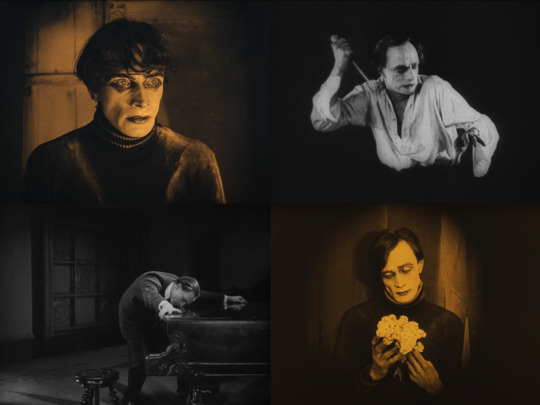
D O U B L E F E A T U R E !
The Cabinet of Dr. Caligari Dir. Robert Weine 1920 // Orlacs Hände (The Hands of Orlac) Dir. Robert Wiene 1924
I recently watched both, Caligari specifically because I was invited on a friend's podcast to talk about the film (I was totally normal about it and definitely didn't make color coded note cards about the making of the movie… I did, I did make color coded note cards). So I figured I would lump these two in one post to switch things up.
--- Even though we talked about the movie for an hour and change, the conversation we recorded for the pod easily could have gone longer. There's so much to unpack about The Cabinet of Dr. Caligari. Between its historical, cinematic, artistic, and cultural significance and legacy, but also the various players on and off camera, not to mention the film's genesis from concept to page to screen -- there's no shortage of rabbit holes to go down.
Something I wish I had brought up during the recording was the score: The score matters! These updated silent film scores really do affect the viewer experience, and they're so often hit or miss. Of course, the original score for Caligari has been lost to time, but I read that the premier of in New York had classical music (Prokofiev, Stravinsky, etc) played along to the screening; part of me thinks this would be fun to try to recreate. I have no memory of the music when I first saw the film in 2009, but when I rewatched Caligari about a year ago, early in my Conrad Veidt journey, I chose a version on Internet Archive (which is, as of late October, sadly still out of commission *cries in nerd*) and the updated score was almost entirely minimal strings, which created a suitably eerie effect. I couldn't find that exact version elsewhere, so I this time opted for the 2014 restoration that's on Kanopy. The 2014 score is… fine. It’s very busy, trying too hard to sound like a traditional movie soundtrack. There's another version with a really painfully bad guitar-heavy score that I couldn't sit through even 5 minutes of, and still another that's entirely synths. Apparently the new 4K UHD/Blu-Ray that was just released has two new options for the score -- hopefully at least one of them doesn't totally suck!
I noticed deep into my third time viewing the film that I hadn't reached for my phone once. These days, I'll occasionally pick it up and mindlessly scroll through social media while watching a movie. But I think Caligari and a few other silent films require closer attention since they're a purely visual medium. I found myself greedily devouring every frame of Caligari. No shot or scene feels wasted. Honestly, I feel like every movie should be 90 minutes long or less. Anything longer should be turned into a miniseries. But in all seriousness, Caligari is another film I want to physically walk into. It would be pretty easy to recreate these sets, life size in grayscale black and white. The more I think about this, the more I need it. So, so bad.
I also came away this time with a lot of questions, mostly about the main part of the narrative, the story Franzis is telling. But the framing device makes the questions pointless. If the main story is just Franzis's delusion, then the absurdity of the script is totally fine I guess? Except the script that Hans Janowitz and Carl Mayer wrote didn't have Franzis as a patient at the asylum, they hated the framing story twist that was forced on their movie, so all those weird parts of the script and character choices that I'm overthinking and reading too much into are rendered meaningless. It's all in Franzis's head! The story and the characters in it don't matter! Or else are just part of his subconscious! Face palm. Eye roll.
Does the movie even work without the framing device? It would be interesting to show an edited version of the movie without the first and last scenes to someone who's never seen it. And if the twist ending was supposed to dumb down the anti-authoritarian message of the script, I don't know that it's successful. In the end, I still have empathy for Franzis. And we still have an ambiguous ending: Caligari/The Asylum Director looks at Mad Franzis and says, "I know just how to cure him," and there's a creepy iris wipe in on Werner Krauss's face that maybe leads us to think Franzis isn't as delusional as we think he is. So like… even if the whole Dr. Caligari with his sleepy twink in a box story is fake, whatever is happening at the asylum is probably just as messed up if not worse.
Speaking of the twink in a box, I love that Conrad Veidt's German Expressionism is totally different from Werner Krauss's German Expressionism. They both trained and performed with Max Reinhardt, so their foundations as theater actors in the 1910s and 1920s were likely similar. But, regardless or in spite of that shared experience, they are diametrically different human beings and that comes across in their performances in this movie. These two actors are like the textbook definition of "showing" your art vs. "being" your art. Krauss as Caligari is like "ooOOOoo look how ooky spooky and evil I am!", whereas Connie's performance as Cesare, even though it's hyper-stylized, is infused with something deeper, something primal that feels believable in the context of the film.
If Cesare has been asleep his whole life, waking only to be fed Chunky Campbell's Soup and commit murder at Caligari's bidding, then no wonder he reacts the way he does when sleeping Jane finally brings him out of his trance. When she freaks out, he freaks out too because he's had no opportunity to learn how to behave like a human or how to filter his primal emotions in a socially acceptable way. He hasn't lived his life except to be a madman's puppet. He reacts to Jane's panic on instinct and impulse, his desire and fear feel feral, like he's more creature or an animal than a human man. He may not actually want to hurt Jane, but he reacts violently because fight or flight is a basic human stress response! He runs away and eventually collapses because his body can't handle the sudden onslaught of stress and emotion he's never before experienced! And this internal, instinctual tendency to violence is subtly alluded to in the final scene when Asylum Cesare both caresses and slowly picks apart the flowers he's holding. Ahhhhh, I have so many FEELINGS.
And that said… Connie's performance here is wild, but it's real in a way that Werner Krauss's work could never be because Connie was a spiritual humanist who cared deeply for others and Krauss was an anti-semitic piece of shit who therefore could NEVER dig deep enough into his soul or into the collective unconscious the way Connie did to breathe life into his characters. So everything Krauss is doing here and in The Student of Prague is all surface, it's "showing" the audience his training and his actor toolbox rather than bringing a level of honesty and in-the-moment groundedness to these roles.
This is not to say Connie's intense commitment to his work couldn't be, uh, excessive. I really hope Lil Dagover was being serious when she said he would lurk around the studio in character when off camera. Can you imagine? You go up to the craft services table for a snack. Suddenly you feel like you're being watched. You look up and he's looming over you in the shadows, his unblinking glazed eyes boring into your soul. God, I hope this happened and I hope whoever it happened to peed themselves a little.
I also wish we had a behind the scenes photo of Connie in costume with the Cesare dummy. I can't believe someone actually had to make that prop. It'll haunt me forever. (The 1920 Cesare Dummy isn't real, the 1920 Cesare Dummy can't hurt me.)
Bottom line: It's an important film, I appreciate it for both its timelessness and timefullness. But it's not a movie I need to revisit often, regardless of how enchanting Connie's nostril acting may be.
---
The first time I watched The Hands of Orlac, I was floored by the visuals, the staging, and the heavy eroticism. Up until that point, I hadn't seen very many silent films, certainly few as visually striking. I think my initial impressions of this film were somewhat muted on a second watch, but that may just because I knew what to expect.
This time, I wasn't as swept up in the magic of silent era German Expressionist cinema, although stylistically I'm still absolutely 100% obsessed. Art direction wise, this is my favorite between the surviving Wiene-Veidt films (I haven't seen Furcht and I don’t plan to). Orlac is like the darker, sexier, more grown up sister to Caligari's mall goth teen. It's Vampira vs Lydia Deetz.
Orlac is just as much if not more of a cinematic feat than Caligari. The production design and art direction alone feels more mature and in itself tells more of a story.
Very early in the film, we're thrown into a very impressive, very realistic train crash. Opening the movie this way was a really interesting choice -- we don't get to meet the characters before the accident that starts Paul and Yvonne Orlac on their doomed and bizarre trajectory. There is a brief establishing scene of Yvonne reading a really horny letter from her husband, and one of pianist Paul at his final concert before returning home. Then there's a very long sequence of the aftermath of the train crash that almost kills Paul, and this scene brings a level of realism you don't really get in other films of this genre/done in this style. The set construction looks expensive; the mangled train cars piled up in heaps may have been fabricated in the studio, but because of the lighting in the night scene, the billowing smoke from passing locomotives and fires from the crash, it looks pretty damn real for 1924. It's extremely effective and harrowing, especially as Yvonne races to the site of the crash and climbs through the wreckage to try to find her husband. The chaos of the scene, made all the more disorienting by the movement of search lights and the haze of smoke and steam, feels true to life. People are running around, pulling bodies from the ruined train cars, carrying them away on stretchers. Survivors look around dazed, clutching their belongings in shock. It's such a well directed moment in the film, but maybe not the first thing people remember about it. And I think it's inclusion is important because it offsets how weird the movie's about to get.
And boy, does it get weird. However, the doctor does say Paul suffered a skull fracture, so it's not a huge stretch to think he also has some kind of brain injury. So I wonder if that has something to do with how the filmmakers chose to show Paul's intense fear and paranoia, as well as the movie's shift in tone and style after his accident. The nightmarishness of the film, from the exaggerated performances to the set design, feels like an extension of whatever might be going on in Paul's head as a result of his injury.
Regardless, I love the choices the art director made. The set, especially the Art Deco mausoleum the Orlacs have for a home, is so perfect. The huge, cavernous rooms are completely unnecessary, but they make the characters look and feel so helpless, like dolls in a doll house. The lines of the walls and the furnishings draw the eye through the frame with just as much intention as the painted sets of Caligari. Even places outside their house become symbolic and iconographic. The news stand is just a window cut out of a massive wall of loose sheets of newspaper that takes up the entire frame. The interior of Orlac Sr.'s house is like a old, drafty castle, looking more like the home of an evil, miserly king. The tavern where Paul is confronted by Nera feels dank and subterranean, just a lamp or two removed from literal catacombs. The outer world is fully a reflection of poor Paul Orlac's inner torment and despair and I AM LOVING EVERY MINUTE OF IT.
The new music composed by Paul Mercer is perfect, too. It's all skronky violins and cellos, ominous percussion and piano. It's just atmospheric enough, creating moments of soundscapes, echoing footsteps, aural suggestions of the oppressive cave-like rooms where the story unfolds. There aren't really any memorable themes like in the updated score for The Student of Prague, but that works for this movie. I would buy this soundtrack and actually listen to it on its own, it's that good.
Everyone in the ensemble is basically on the same page in terms of acting style, no one feels out of place or miscast. Connie of course steals the show, but Alexandra Sorina as Yvonne gives him a run for his money. She's a good match for him, delivering an appropriately desperate and hysterical (and deeply, deeply horny) performance as the touch-starved wife. Their scenes together are maybe some of the best on screen romantic moments of Connie's silent film work because these two are wildly hungry for each other. This movie is so funny, it tells you immediately how horny it is; in the first 30 seconds of the movie, Yvonne gets a letter from Paul that says, "I will feel your body beneath my hands," like they're telling you straight up this is going to Horn Town. And the way she grabs at him, presses her open mouth to him, hovers over him in his hospital bed, she is DTF anywhere any time. And no shame, no shade, good for her. This is a sex positive film, and we love to see it. But she's not just the sexy wife, she's also totally ride or die for Paul. She truly trusts him and believes his absolutely buck wild story about being blackmailed by a dead psycho killer. What a gal.
Then there's Paul, aka Eraserhead Baby… because when he wakes up from surgery covered in bandages, he looks like the Eraserhead Baby. Connie is doing some of his finest nostril acting in this role, I have to say. As always, I am fascinated by his physicality and the choices he's making with movement and gesture. When his bandages are finally removed, he reacts as though drugged, his movements slow as though underwater or in a dream. And when he confronts his surgeon after discovering the original owner of his newly transplanted hands, he holds them out and away from his body as if they were coated in something dirty or disgusting. As Paul's life and sanity unravel, his hands and fingers are in almost constant motion, curling, twitching, clutching; his body language becomes more creature-like, moving in a way that calls up Cesare the sleepwalker -- interestingly, the two characters both seemingly at the mercy of forces outside their control.
We don’t get to know what Paul was like before the accident, how much this traumatic event changed him. There's something this movie is trying to say about trauma and how it affects people. The doctor tells Paul, "Nature and a strong will can overcome anything." But if Paul sustained any kind of serious brain damage, who’s to say his personality wasn't affected, or that he wasn't fragile and suggestible to begin with? Either way, in the wake of the accident, Paul's vulnerability and circumstance makes him a perfect target for Nera's grift.
Even without being targeted by a sick weirdo con artist, it's no wonder Paul's really going through it. He tortures and punishes himself relentlessly for something that wasn't his fault! (Been there.) He puts on a recording of one of his old concerts and crumples in grief for having lost not only his livelihood but also his outlet for creative expression -- not being able to do what you used to creatively because of trauma is REAL. He's trapped in his misery. Even his handwriting is different, now a violent scrawl he imagines is due to the murderous acts his hands supposedly committed. He secretly retrieves the planted murder weapon in order to further convince himself he's somehow become evil, wielding it as through he committed the crimes of the dead man whose hands now belong to him. And the scenes where Yvonne comes to him, wanting to both devour and comfort him, he cannot bring himself to touch her. Clearly they love each other very much and their relationship was very physical, so the agony and yearning in his face when she embraces him is UGH IT'S SO GOOD. It's heartbreaking. There's a lot to unravel here about trauma, body dysmorphia, and intimacy that I'm interested to dig into during subsequent viewings.
Final thoughts: There's an annoying part of my brain that wants the movie to make sense, for the timeline to be clearer, for loose ends to be tied up. But I know that none of that really matters because this movie is better received as a dream or a nightmare. And by that logic, it doesn't have to make sense. The Expressionist beats are being hit particularly hard, but the surreal quality allows the filmmakers and cast to get away with it. For fans of Conrad Veidt, this is a must-watch, even before Caligari -- he gets more screen time in this film, gets to play with his silent film artist's palette, and gets to do pathos like he's the king of tragic, pathetic characters. He's gangly, glassy-eyed, and trembling like a small wet dog the whole time and it's superb. Despite not really getting a chance to know the Orlacs before they're thrown into their own personal hell of body horror and credit debt, they're both pretty sympathetic. From psychological commentary to the erotic visuals and tension, it's all very ahead of its time.
24 notes
·
View notes
Text
Thelma Mothershed Wair, one of the nine Black students who integrated a high school in Arkansas’ capital city of Little Rock in 1957 while a mob of white segregationists yelled threats and insults, has died at age 83. Mothershed Wair died Saturday at a hospital in Little Rock after having complications from multiple sclerosis, her sister, Grace Davis, confirmed Sunday to The Associated Press. The students who integrated Central High School were known as the Little Rock Nine. For three weeks in September 1957, Arkansas Gov. Orval Faubus used the National Guard to block the Black students from enrolling in Central High, three years after the U.S. Supreme Court declared segregated classrooms were unconstitutional. President Dwight D. Eisenhower sent members of the Army’s 101st Airborne Division to escort the students into school on Sept. 25, 1957. Davis said she was enrolled at the University of Arkansas in Fayetteville when her sister and the other students — Minnijean Brown, Elizabeth Eckford, Ernest Green, Melba Pattillo, Gloria Ray, Terrence Roberts, Jefferson Thomas and Carlotta Walls — integrated Central High School.
22 notes
·
View notes
Text
The Trees Keep Growing
From the Love Letter Series
Robert “Rosie” Rosenthal x Josephine Harris (OFC)

All’s fair in love and war. When Croz is out for the count, Rosie is left to navigate D-Day without his best friend. While things are changing rapidly in East Anglia and in the course of the war, the same could be said for Jo back home. While Rosie has Harry Crosby by his side, Jo is never far fromJean Crosby. The pair embark on a new adventure that leaves their respective airmen both baffled and impressed. Who says that the boys are the only ones who can be part of the war effort?
Read part 6 Here Follow along with the Love Letters Playlist
Spring had turned to summer at Thorpe Abbotts and with the time that passed since Rosie’s reenlistment, he found himself struggling. He would often contemplate whether he had made the right decision in staying when his entire crew had taken their ticket home. Back to safety, their families, their wives and sweethearts; they had gone back to someplace that brought happiness. Rosie would often need to conjure up a vision of happiness in his mind in order to even feel a single ray of it some days. Despite having friends on base, it sometimes stung a bit more than he wanted to admit that he felt guilt after the fact. Guilt for not following his crew, guilt for not going home to his worried Ma, and most of all he felt the guilt that came with knowing he was keeping Jo waiting longer than she should have. He thanked whoever was up there watching over him that he had found love in a woman who remained waiting, but he hated that he was making her do it.
Thankful that she had found sisterhood with Jean and now, Juliet, he knew she was doing what she could to stay occupied, however he wondered how long she could remain occupied with simply afternoons with Jean or lunch with his mother. He could tell in her last few letters that she desired more- more excitement in her life, more adventure, and he knew that if he had taken the ticket home, he’d have been able to do that for her by now. Instead, he remained here, fighting with the others who either hadn’t made the required mission count,or were also devout to stay and finish the fight.
He found a brother in Croz, who’s own wife was also at home waiting, and friends in Ev Blakely and James Douglass. The four of them, all newly promoted Majors, stuck close to each other. All part of what was now considered the Old Regime, along with Jack Kidd, they kept the 100th breathing. The Red Cross girls were there every morning with fresh coffee and donuts and smiles on their faces, but Rosie had begun to notice that they didn’t joke with the new fellas the way they used to with the original airmen. Most of their friends had either died or were being held in the Stalag, and outside of him and the Majors, the girls stayed clear of creating friendships with replacements. He couldn’t say he blamed them. Val had been an immediate sense of home for him when they met so many months ago; her Brooklyn accent and bright smile set him at ease that first night in the officers club, and because of her closeness with the others, he and his original crew had been welcomed into that fold with open arms. He was thankful for that familial bond that was created amongst friends, but now he was ready to bring all of that back home and carry on with his friends with Jo by his side.
Things were changing, and fast. He knew that with the invasion of Western Europe on the horizon they would either be close to the end of the war, or prolonging it even further, but what he hadn’t counted on realized how fast things at home were changing as well. When Croz came bursting through the door of the office he shared with Blakely, mail in hand, and running on fumes and no sleep, he had assumed something big was percolating in the Operations office.
“Christ, Croz, where’s the fire?” Blakely mumbled, cigarette wedged between his lips, barely looking up from the papers on his desk.
“Mail call fellas!” He frantically waved the envelopes in his hand, gesturing to Rosie with a nod of his head and a smile.
“Do you ever sleep, or are you taking on a job with APO too?” Rosie joked, snatching the letter from his friend and immediately smiling as he saw Jo’s perfect cursive on the envelope.
“Just doing Tattie a favor,” Croz rolled his eyes, dropping the envelope for Blakely on his desk next to his coffee. “Ev, one for you.”
“Thanks buddy.” Ev waved him off, again, not looking up.
Rosie nodded, retreating to his desk with the envelope in hand and a smile on his face. Without waiting for the other two men to open theirs, or offer their privacy, he tore into the seal of the envelope and pulled out Jo’s letter.
The paper smelled faintly of her perfume, a fresh floral scent that immediately brought a smile to his face. Eyes closed, he lifted the paper to his nose and gently inhaled, letting the scent of her take him back. Back home, to safety, to happiness, to her. Unfolding the paper, before he could even read a single line, a small square photograph fell out and onto the desk. It was face down, and he noticed she had written on the back Jean and I at Coney Island. Flipping it over, there was a photo of Jo, and Jean Crosby, standing in front of The Cyclone. Their sunglasses were shielding their eyes, but their smiles were bright. His Jo, the smile on her face, and Jean standing where he felt he should have been. Or, that he and Croz should have been there with them together.
“Croz, c’mere!” He looked up from the photograph, but was met with the retreating form of Harry as he exited the room, the door slamming shut behind him.
“He’s a mess,” Blakely groaned, his own mail still in the envelope on his desk. “Whatcha got there?”
Rosie handed over the small photo to Blakely, the pilot careful not to get too close with his cigarette, let it rest in the ashtray on his desk before bringing the picture closer so he could get a good look.
“Is that Coney Island?” He looked over at Rosie, one side of his mouth curved in a half smile.
“Yea, usually we go every year and I drag her on the Cyclone with me.”
“Jeez Rosie, you take that poor girl on that thing?”
“I think she secretly enjoys it,” Rosie laughed. “Otherwise she’d have put her foot down a long time ago. Or my mother would have given me a smack.”
“Val says that thing is scary,” Blakely laughed, handing the photo back to Rosie. “Said Curt used to drag her on it when they were kids.”
“From what she’s told me about him, that sounds about right.” Rosie laughed, turning back around in his seat so that he could dive into his letter from Jo.
My dearest Robbie,
It’s summer in New York, and I miss you terribly. I have some exciting news, though, and I do hope you haven’t already heard it from Harry- par for the course though if you have, since I heard your big news from Pappy. I’ve taken on a job with Jean at the War Department in the city, working on the switchboard! And will be moving in with Jean until you and Harry return. Though, by the time you get this letter I’ll probably have already started working and will be moved into the Crosby home. My father put up a bit of a fight, but in the end, I’m not sure I need to tell you that he softened up and let me go. My mother won’t say how she did it, but I know she did something.
Jean and I spent so often shuttling between her home and mine, it just made sense when she asked. Having someone to talk to at night who is going through the same things makes a world of difference, and I’m so glad I can be there for her. She’s been in their home now for over a year, all alone and I’m not quite sure how she managed. It will be nice to have a roommate, and if things work out, Juliet may be coming to spend some time with us this summer as well. Lord knows she’s missing John Brady terribly and could use the distraction now that school is out, so when Jean and I spoke with her last, we suggested a bit of a getaway for her.
I quite like it in the city, Robbie, so you would not have to twist my arm much to move here once you return. We’d be much closer to our friends than if we stayed in Flatbush, though I fear our mothers would miss us terribly (even though we’d be a cab ride away). I am dreaming of those days, Robbie. I pray this war is over soon so that we can begin again as we were meant to.
I know I said it before, but I do miss you, so much my darling. Summer days are bright, and warm, but there’s such a din over each day that you’re not here. By now, we’d have been to Coney Island at least once, and you’d have taken me to ride the cyclone. Against my will, I might add! You’ll be happy to know that Jean and I rode it on our visit a few weeks ago and it’s still as frightening as ever. But the beach was wonderful, even if we only dipped our toes in the water, and the cotton candy was sweet. The only thing missing was you (and Harry). I hope that by the time next summer arrives, we can carry on as usual with our friends. I do hope you like the photograph I sent along- no need to fight Harry for it, Jean sent him the same.
We also had Juliet with us on our day out, as well as a friend of hers from home, Ruthie. What a sweet girl she is, and I hope we get to see more of Ruthie over time. It’s very sweet that she and Jules remained friends from school until now. Have you had any word from John Brady and the rest of the fellas that are stranded? Juliet mentioned that her last letter from John had been a few weeks ago now- I can’t imagine the post is very reliable in Germany, especially where he is. I pray they all find their way home safely, and soon!
Speaking of friends, Pappy wrote to me again. Much less frantic this time. It seems I’m not the only one missing you, though for different reasons entirely, my love. He wasn’t sure if he should write to you on base, assuming you’d be busy with your new crew, so he wanted to let me know he and the rest of the Riveters all arrived home safely, so I’m passing that news on to you. I think it would make Pappy’s day if you wrote to him when you had a moment. I’ve already done the same.
How is your new crew doing? Have you been able to bond with them, or is it so entirely different from the boys? Your new copilot has big shoes to fill, in my opinion, and I know you’d never tell him that, but it’s true, Major.
My darling, I’m counting the days until we’re together again, and praying that each time you’re up in the clouds you return safely. I fear that I may never recover should anything ever happen to you before I’ve had a chance to hold you in my arms again, and even then. Please, come home to me soon, Robbie. We have a life to start living together.
Sending you all of my love, hugs and kisses.
Your Jo
Rosie read the letter again before letting the paper fall to his desk. Leaning back in his chair, he scrubbed his hand over his face, feeling the effects of Jo’s words; her updates from home, stories of time spent with friends, and how much she missed him. The eager way she described wanting to begin their life always left him feeling an empty pit in his stomach, willing the days to pass him by so that he was closer to those promised days of dancing in the kitchen, building their life together.
Letters from her always left him feeling a certain way about reenlisting, the guilt creeping into the edges of himself, telling him that he was stupid and could have been home with his girl by now. He would resolve to tell her in every letter, any chance he could, that he was fighting for her, for their future, and he would be home with her as soon as he could. He fought because he loved her, and needed to keep her safe. It was those words to her that would subsequently smother the guilt each and every time.
“Rosie, you good?”
Shaking his head, he turned to find Blakely staring at him, now finished reading his own letter, and he realized he must have lost himself in the moment.
“I’m good,” He nodded. “Just….”
“Missing home?”
“Missing Jo.” Rosie sighed.
“Figured as much. What’s going on back home? Anything exciting?” Blakely’s attempt to get him to talk about it was kind, and Rosie realized after a beat that his friend was asking because he cared. Because his Jo had become friends with Val, and they were now intertwined and would be far beyond the days of war.
“Jo moved in with Jean,” Rosie laughed, watching as Blakely’s eyebrows shot up, a look of surprise on the pilot's face. “And they both took a job on the switchboard with the War Department.”
“Croz know this yet?”
“I’m assuming it’s in the letter he got from Jean.”
“Give him a minute and he’ll be through the door like a bat out of hell.” Blakely shook his head, laughing.
“Honestly, has he slept at all?”
“Can’t really say, but it’s grating on Doug’s nerves. Says he keeps making all these mysterious phone calls to someone called a Subaltern?”
“Not good,” Rosie shook his head, already knowing that Croz had something going on with a woman in London, but unsure if Everett and Douglass knew the same. “He’s gotta sleep, it’s been three days now, and we’re not getting through this if we don’t.”
“We should send in the big guns.” Everett grinned a devilish grin, and Rosie knew he was thinking of something troublesome.
“Pretty sure Jack would just drag him to his rack kicking and screaming.”
“Not Jack,” Ev shook his head. “Olive and Val.”
“That’s a terrible idea.”
“No, the uppers Smokey keeps giving him are a terrible idea.”
“Okay fair.” Rosie chuckled, but stopped as Jack Kidd’s voice rang out through the Operations office, the Air Exec sounding more panicked than he usually did.
“That's not good…” Rosie groaned, standing from his desk and making a beeline for the door, Blakely hot on his heels.
“Nope…”
As they emerged from the office, they were greeted by a crowd of people gathered in the middle of the room, Jack Kidd and Douglass crouched on the ground next to Harry Crosby, who was face down and passed out.
“What happened!” Rosie called out, not wanting to crowd him more by joining them.
“He was in my office, slurring about how he had more to do,” Jack sighed, standing to his full height. “Stumbled out after refusing to go to bed, and passed out.”
“You call Smokey?” Rosie looked at Jack, already knowing the answer.
“Yea, said we need to let him sleep it off.”
“We?”
“Yes, so would you get him off the floor and into a jeep?”
Rosie exchanged a look with Blakely who turned to Douglass, the three of them silently arguing over who would be the ones to carry Harry Crosby out of the Operations office and outside to a jeep, and then, get him undressed and into bed. Jack sent all three of them, if only to get them out of his hair and stop the arguing.
They were on the heels of D-Day and Croz was out for the count.
——————————————
“What the hell happened to him!”
The jeep rolled to a stop outside the Officers Hut, Rosie behind the wheel while Douglass tried his best in the back to keep Croz from falling over onto him. Tattie and Helen were walking past with a stack of mail from APO when the boys approached the hut, eyes wide as they saw Harry slumped over.
“Stupid son of a bitch passed out.” Dougie groaned, pushing him off his shoulder again as Rosie hopped out of the jeep and around to the back to help him. The pair of them lifted Croz from the jeep, Rosie holding his ankles while Doug held under his arms.
“Jesus Christ,” Tattie groaned, moving to pull the door open for them. “You need me to get Smokey?”
“No, Smokey said he’s gotta sleep it off.”
“Does one usually sleep off a coma?” Helen followed the boys into the hut, knowing no one was in there at the moment, and also that neither Rosie or Douglass were going to get Harry out of his uniform and into bed properly.
“Helen, you shouldn’t be in here,” Rosie turned to her. “We can get him sorted out.”
“You’re going to take his clothes off, Rosie? Douglass?” She fixed them both with a look that had Tattie following her inside, the pair of them quickly shooing the boys out of their way as they made quick work of getting Harry out of his uniform and under the covers.
“Go on, we can sit with him for a bit.” Tattie ushered them out of the way and towards the door of the hut, a stern look on her face.
“Tattie, we can’t leave you girls in here.”
“Then someone better go tell Colonel Bennett that Croz is half dead and you two can’t keep an eye on him.” Her arms were crossed over her chest and her eyebrow was raised so far it almost disappeared into her hairline. Rosie knew that arguing with Tattie, head of the Thorpe Abbotts Red Cross girls was never a good idea, but now, they were being given orders from Tattie Spaatz, General’s daughter.
“We’ll let him know.” Rosie sighed, taking Doug by the elbow and leading him out of the hut.
“Good,” Tattie nodded, pulling up a chair from one of the desks in the hut next to Harry’s bed and promptly taking a seat. “Might be best to put an MP somewhere to let guys coming in and out of here know I’m here.”
“Noted, Tat… thanks for staying with him.”
“Of course,” Her face softened to a smile, and Rosie knew that Harry was in good hands. “This son of a bitch better wake up soon or he’s going to miss all the action.”
“You ain’t kiddin!” Doug crowed as he followed Rosie outside and back to the jeep.
Once outside, Rosie stopped to actually take stock of everything in the last half hour, and he couldn’t stop himself when he started laughing. Elbows resting on the side of the jeep, he let himself have a good, long laugh; something he hadn’t had done since Pappy and the boys all left for home. Something he didn’t think he could do without his friends, until suddenly he realized, he was still with his friends.
“I can’t believe he passed out…”
“This is going to spread like wildfire,” Doug shook his head, lighting a cigarette amidst his own laughter. “Harry Crosby, greatest navigator, passed out in the Ops office.”
“The greatest navigator was just put to bed by Tattie Spaatz.” Rosie added, trying to calm himself before they went back to their offices.
“Now that is funny,” Doug barked out a laugh.
Rosie spent the next two days juggling the invasion of Western Europe both on the ground and in the skies, and sitting with Harry while he remained asleep. They had all taken turns watching over him, especially when Rosie had to fly, so the Red Cross girls would slip into the unoccupied Officers Hut and sit by him, waiting for any signs that he may be coming back into the conscious world. It was Saturday morning when Rosie had woken, and looking over to the rack next to his, saw that Harry was still asleep. He went about getting showered and dressed, and slipped out to the Clubmobile for a quick coffee from the girls.
He found Val and Olive at the window, Meatball tied to the pole outside. The husky perked up immediately upon seeing him, and Rosie stopped to shower him with affection before carrying on with his morning.
“Hey Meatball, hey pal, yea you having a good morning buddy? I bet you are, soaking up all this sunshine and hanging out with the ladies.”
“Oh he’s quite the ladies man,” Val called out to him, and when he looked up he could already see her preparing him a cup of coffee. “Not sure what he’s going to do when DeMarco comes back.”
“Howl and complain about it for a bit I’d imagine.” Rosie chuckled, standing and crossing the distance to the window of the Clubmobile.
“Morning, Rosie.” Val smiled, handing him the coffee and a newspaper that he hadn’t asked for, but was grateful for regardless.
“Heya Val,” He nodded. “Thanks for the paper.”
“Figured you’d need something to read while you’re sitting with Sleeping Beauty.” She rolled her eyes good naturedly.
“Thanks, I’ll get to it after I write Jo. I owe her a letter. She wrote before D-Day and with everything going on here, I haven’t had a spare minute.”
“Rosie…” She fixed him with a look. “Don’t leave that sweet girl waiting for you any longer, I’m sure she’s worried. They’ve been reporting on the invasion back home round the clock, so I’m sure she’s heard enough of the news by now.”
“Yea,” He sighed, knowing Jo was probably worried sick. “I ought to write to Jean too, and let her know that her husband slept through the invasion.”
“I’ll take care of that. You worry about Jo, yea?”
“Yea, thanks Val.”
“What are friends for, if not to tell them your husband neglected to sleep and is now in a self inflicted coma.” She shrugged.
“I’m starting to wonder if we should get Smokey to come look at him,” Rosie confessed. “This is three days now, and he hasn’t budged.”
“Give it till tonight,” She conceded. “If he hasn’t woken up, we can pop in on Ole Doc Stover and see what else we can do.”
Rosie made his way back to the Officers hut with a prayer in his head and a plan to put pen to paper and write to Jo. Val had been right, he was sure of it. News of the invasion had made its way to the states and was being reported round the clock; he should have realized sooner that she would be worried. Especially now with her new job, who knows what she was hearing as it passed through the switchboard, or as she walked through the halls of the War Department.
I’m sorry for neglecting your letter for so long, my sweetheart…
__________________________________
The sun was still shining brightly by the time Jo and Jean got off the bus, another week of work at the War Department under their belts. When Jo had talked about getting a job, after Jean had offered her a room in her house, Jean had wasted no time in getting on board with her plan. Initially, Jo had wanted to contribute to living with Jean- even if it was just the occasional bill and some groceries. So the pair of them had settled into the most comfortable routine of living together, taking the bus to work in the morning, and then either having dinner at the Automat or picking up groceries to cook at home. At night they would listen to the radio, gossiping about the women who worked on the switchboard with them, or writing letters to Rosie and Harry. What had started out as a friendship forged between two women whose sweetheart and husband were stationed overseas together, had turned into a sisterhood. Quite frankly, Jo couldn’t picture not having Jean in her life; and it was only right that both Rosie and Harry, thick as thieves and best of friends in the Eighth Air Force, would come home to their sweethearts much the same.
“Do you want to pick up dinner or do you feel up to cooking?” Jean asked as they walked up the block in the direction of their house.
“What do we have in the icebox? Anything worth rushing home for?”
“We have that casserole Mrs. Rosenthal dropped off when she came by.”
“Oh Jean, that can’t still be good,” Jo scrunched up her face. “It’s Friday, no, let's pick up something at the Automat and bring it home.”
“You would have said that even if we had something worthwhile at home.” Jean teased, bumping her shoulder to Jo’s as they continued on past their block to where the Automat was.
“Who wants to cook on a Friday!”
By the time the pair returned home, dinner in hand, the sky was just beginning to turn that delightful golden color that only comes with warm summer nights and clear skies. It wasn’t late, not by any means, and so once in the house, Jean had set to making them both a cocktail while Jo sorted through the mail before dinner. It was a simple routine, but one that kept the pair of them happy given the circumstances. From the kitchen, Jo could hear the methodical clanging of the shaker as Jean measured and poured, the telltale sound of her stocking feet padding back into the kitchen to retrieve the olives that they kept in the cooler.
“Almost forgot!” Jean victoriously held up the jar before retreating back to the living room.
As Jean began vigorously shaking the martini’s she had prepared, Jo picked up the stack of mail that had been on the floor, on the other side of the front door, when they got home, and began shuffling through the envelopes and catalogs. Woolworths, Macys, the electric company, ahh, there it was, letters from Thorpe Abbotts!
“Mail call!” Jo hollered with her head sticking out of the entrance to the kitchen, the young woman jumping back as Jean rounded the corner with two glasses in hand.
“Oh lovely,” She passed one off to Jo before moving further into the kitchen to sit down at the table. “I love when there’s mail from the boys!”
“Me too,” Jo took the seat opposite her, glass next to her on the table, she pushed the miscellaneous mail off to the side, and kept the small stack of letters in front of her to dole out appropriately. “Let’s see, one from Major Crosby, for Missus Crosby.”
“Josephine!”
“What, I know you sign your letters from Mrs. Jean Crosby.”
“Go on, what else have we got there?” She rolled her eyes,taking a sip of her drink.
“Hmm, oh, from Val to Jean!”
“Oh, how sweet of her!” Jean smiled, accepting the two envelopes from Jo. “Is there mail from Rosie as well?”
“Yes,” Jo sighed in relief at seeing his penmanship scrawled across the envelope. “And one from Juliet for the both of us.”
“We can read that one together,” Jean nodded. “Come on, let’s get dinner on the table and we can tear into these letters.”
They made quick work of getting dinner out of the takeaway bag and onto plates, moving with a bit more haste than they might after a week of work. Anxious to hear from both of their boys, the club sandwiches and french fries were plated almost haphazardly before they were back in their seats. The sandwiches remained untouched, but the french fries were picked over slowly, one by one, as their mail was devoured in place of the main course.
My dearest Jo,
Sweetheart, I’m sorry for not writing sooner. I fear I neglected your latest letter far too long with all that was going on over here in the last weeks. I’m sure by now the news of D-Day has reached the reporters back home and you’ve heard it told over and over on the radio. Before you worry too much, I promise you I am fine, and unscathed from my flights during that day. The crews that we trained, and all of the planning and maps that took up days and nights, did not go without success. Things here seem to be shifting in our favor and I am feeling good about it. We all are. A lot of the new fellas celebrated the invasion in the Officers Club, but I chose to stick close to my regular crew of friends. We found a quiet spot out on the airfield and had a toast- it felt bittersweet to be celebrating such a big accomplishment with so many of the boys who helped get us there, trapped in Germany, or worse, not with us any longer.
Speaking of those not here, I wrote to Pappy after hearing that he had written to you. He’s good in that way- now that he’s home he will probably continue to write to you, if only to make sure you have a friend other than Jean and myself. I’m sure he’s happy to be back home with his family, but I’d be remiss to say you were right, and no one could fill his shoes in my Co-Pilot’s seat. If anything, I laugh a bit less when I’m up in the air, because he always had some kind of witty remark.
Rest assured, I do laugh, though not the way I’ve spent many a day doing with you. I feel bad for saying I had a good laugh at Harry’s expense, but rest assured he’s alright now. Our friend got a bit too invested and determined in the planning leading up to the invasion, and thought he could go three days without sleep. He was surviving on copious amounts of caffeine and uppers from the med hut until it was just too much. Harry collapsed, face first, in the middle of the Operations office. Surrounded by everyone in there, Douglass and I had to carry him out and into a jeep. The whole ride back to our hut, Douglass kept Harry from toppling over onto him, until we finally hauled him into bed. Thankfully, Helen and Tattie spared us having to get him, uh, changed for bed. Harry was out cold for three days- Val says it was a mini coma, but we’ll never know. Meatball spent three whole days curled up on the foot of Harry’s bed while we all rotated who sat with him. The girls were so good, and took shifts while the fellas and I continued working. If you’re wondering what caused me to laugh so hard, it was that our head navigator was stripped down to his skivvies and put to bed by General Spaatz’s daughter. Jean should have received a letter from Val letting her know Harry is alright but I didn’t want you hearing secondhand.
Now, the most important part of this letter, darling, is to tell you that you looked absolutely stunning on your beach trip, and I will forever be remiss that I wasn’t there to see it in person. You rode the Cyclone without me? Jo, how did you ever let Jean talk you into that? You put up a fight when I do it! Did you girls ride any of the other attractions, or go into the fun house? I think that’s sweet that Juliet made the train ride into the city to spend a day with you girls. How did you get on with her friend Ruthie? If she’s anything like Juliet, I’m sure you adored her just as much. I also want to hear all about your new job on the switchboard! What made you decide to go out and get a job? I’m so proud of you honey pie, and I bet you’re also having the time of your life living with Jean. I know you two enjoy spending time together, and I already told Croz, we’re going to be spending a lot of time together once we get home, simply because I believe you and Jean are already inseparable.
Seeing you at the beach, it's made me miss you just so terribly, Jo. My days have been mountains of paperwork as of late, and the occasional flight. I don’t get up into the sky as much as I used to, which is both good and bad. It keeps me on the ground, being in Operations with the fellas, which I know you’re thrilled for because it keeps me safe. I am too, darling, because I promised you I’d come home to you safe and in one piece. I fully intend to keep that promise to you. But I can’t lie that I find a thrill with being up in the clouds, and I wish I could explain it better than that. It’s a thrill. Like when we ride the Cyclone and you scream your head off, and clutch my hand until I think you’re going to break it. You’re petrified every time we get on, but by the time we’re back on the ground you’re laughing like it’s the first time I took you on all over again.
I miss that laugh, sweetheart. I wish I could have bottled it up and taken it with me over here. I doubt I would ever have a sad day on base if I could hear you laugh every day. I can admit to you that sometimes I feel a bit envious of guys like Blakely & Douglass who are so lucky to have their sweethearts here with them. I’ve seen them both have terrible days, reports on top of reports, and as soon as one of the girls pops into the office with coffee for everyone, their entire expression lightens up. While I take such comfort in knowing you’re
home and safe, I do so wish I could spend my days with you, or at the very least my nights. Curled up in a big armchair in the Officers Club, sitting by the fire, a cocktail before bed and maybe a dance. I dream of being back at Minton’s with you, honey, and can’t wait to take you for a spin on that dance floor. Counting the days until we’re together again, Jo. Until we can have a place of our own, and everything you’ve ever dreamed of. I’ll make sure of it.
All of my love, forever.
Your Robbie
Jo read the letter over again, eyes watering as they always seemed to do when she’d get a letter from Rosie. There was always something bittersweet in those letters; his constant declarations of love to her, and the anecdotes of life on base. She really felt for him this time, not ever realizing how difficult it had to be for him and Harry to see Douglass and Blakely with their sweethearts every day on base. To know that they were comforted in a way that Rosie was craving daily, but could not have because she was home in New York. It broke her heart more than she thought it already was broken with him so far away.
When she looked over at Jean, she saw that she was wiping at her eyes, and just as she was about to ask what was wrong, she realized that her friend was laughing, the sound getting more and more hysterical as the seconds ticked by.
“Jean? Are you alright?”
“He…oh my god!” She wheezed, wiping at her eyes. “Bing passed out and slept through the damn invasion!”
Jo immediately fell into her own fit of laughter, having wanted to chuckle when she read that in Rosie’s letter, but unsure if she should.
“Robbie mentioned it in his letter…”
“Bing didn’t say a word! I had to find out from Val!”
“Did she mention that General Spaatz’s daughter stripped your husband to…to his… oh god, his skivvies and put him to bed because Robbie and Douglass couldn’t?”
“YES!”
The pair of them were in stitches, wishing they could have been a fly on the wall to see Harry’s great fall, as Val had called it. She was sure he was too embarrassed to tell Jean himself, but you could always count on friends to tell you a good story and provide a good laugh.
“Oh he must be so cross with himself!” Jo shook her head, wiping the last of the tears from her eyes as she righted herself.
“From the sounds of it, he is, but the rest of the base had a good laugh at his expense.”
“I think deep down, Robbie felt bad for him.”
“Deep, deep down,” Jean shook her head. “The deep down part that wasn’t carrying my husband to bed.”
“Yes, that’s the part,” Jo nodded. “What else did Val have to say?”
“Oh, that was it. It was a quick letter, but she’s a pip that girl.”
“Oh?”
“She writes the way I imagine she’d speak…” Jean chuckled. “With an accent like yours but she talks a mile a minute.”
“Oh, I absolutely think the same thing!”
“Your husband passed out, and slept through the invasion, but oh your beach outfit was so cute!” Jean did what she assumed Valencia sounded like, and gave her Brooklyn accent the old college try.
“Jean!”
“We’ll know what she sounds like when the war is over and she’s back home, but yes. I think she’ll sound a bit like you.”
“Have you read Harry’s letter?” Jo gestured, french fry in hand, to the other envelope on Jean’s side of the table.
“Not yet,” Jean signed, and Jo knew she was worried it would be another letter of short sentences, without any of the love that he used to ensure she knew he felt. The war had stripped Harry of the things that filled him with compassion, and it was starting to break Jean down. “I’m almost scared to open it.”
“You shouldn’t be scared, Jean. He’s your husband and he loves you.”
“Lately, his letters don’t feel that way.”
“I know, honey, but he does love you. We have to remember that everyone is dealing with the war in their own way. He’s lost a lot while he’s been there.”
“Bubbles dying is what changed him,” Jean’s voice grew soft. “I can’t imagine that has been easy for him.”
“Go on,” Jo gently pushed the envelope closer to Jean’s waiting hand. “See what he has to say.”
Nodding, Jean quietly tore into the envelope before unfolding the sheet of paper containing Harry’s letter. She watched as her eyes scanned over the paper before suddenly lighting up, a bright smile coming to her face and a gasp filling the silence of the kitchen.
“He’s coming home!”
“Oh! Jean, that's wonderful!”
“It’s only for four weeks, but he’s coming home!”
“Four weeks?”
“They’re giving him leave, he suspects it’s in part to his exhaustion.”
“The man slept for three days straight, how can he still be tired?” Jo narrowed her eyes from behind her martini, causing Jean to laugh.
“I’m not sure, but he’s supposed to arrive at the start of July.”
“That’s not far off, we’ll need to get you ready!”
“You’re not upset?” Jean suddenly looked at her, brows furrowed and eyes full of concern.
“Upset? Why would I be upset? You get to see your husband, after him being gone for so long, Jean, that’s so wonderful.”
“I mean, that he’s getting leave and Rosie isn’t.”
“Robbie’s time will come,” Jo nodded. “Right now, they need him there, and if they need him on the ground, I feel a bit better knowing he’s there at least.”
“Safer on the ground,” Jean agreed.
“I’m so thrilled for you and Harry, truly Jean.”
Jean reached across the table, her hand covering Jo’s and giving it a gentle squeeze. The girls shared a smile, both of them filled to the brim with emotions and excitement. Jean, at getting to see her husband again after so long, and knowing that Harry and Jo will finally get to meet face to face. Jo found solace in Rosie being safe once more, and even though he was sometimes buried under mountains of paperwork, she was happy that he was able to find his thrill in the sky when he could. A bit like riding the Cyclone, he had said, and she was starting to understand that analogy a bit better now. It made him happy in the end. She’d be sure to tell him that in her next letter, and make sure that he knew she never wanted him to stop finding happiness.
Read part 8 HERE
My dearest Robbie…
A/N: Thanks for reading! This series will continue for Rosie & Jo, so if you enjoyed this, please like, comment, reblog- whichever is your poison. Feedback is always welcome & my ask box is always open. If you want to be added to my tag list, or removed, let me know!
Tag List: @rowdy-redhead @winniemaywebber @sagesolsticewrites @bobparkhurst @rosiesriveter @victoryrollsandredlips @bcolfanfic @major-mads @footprintsinthesxnd @roosevelt-stalin-cocacola @justheretoreadthxxs @claireelizabeth85 @hephaestn @ktredshoes @barrykeoghussy @peachessndreamss @hellfirequinnie @spinteresting @prettyinlimegreenboots @manonsmanicmind @precious-little-scoundrel @beingalive1
#love letters#love letters: rosie & jo#Rosie & Jo#oc: josephine harris#rosie rosenthal#masters of the air#mota fanfic#oc: jean crosby#rosie rosenthal x oc#masters of the air x oc#rosie rosenthal x ofc#gina baker writes
21 notes
·
View notes
Text

The Warriors will be released on 4K Ultra HD and Blu-ray on December 12 via Arrow Video. Laurie Greasley designed the new cover art for the 1979 action thriller; the original poster is on the reverse side.
Walter Hill (48 Hrs., Deadwood) directs from a script he co-wrote with David Shaber (Nighthawks), based on Sol Yurick's 1965 novel. Michael Beck, James Remar, Deborah Van Valkenburgh, Marcelino Sánchez, and David Harris lead the ensemble cast.
The limited edition set comes with a 100-page book featuring new writing by film critic Dennis Cozzalio plus archival material, a double-sided poster, six art carts, and gang logo stickers.
Both the theatrical cut and the 2005 alternate version have been newly restored in 4K from the original camera negative, approved by Hill, with Dolby Vision. The theatrical cut is presented in its original 1.85:1 with original uncompressed mono, stereo 2.0, and Dolby Atmos audio. The alternate cut has stereo 2.0 and DTS-HD MA 5.1 audio.
Special features for the two-disc set are listed below, where you can also see more of the packaging and contents.

Disc 1 - Theatrical Cut:
Audio commentary by A Walter Hill Film author Walter Chaw (new)
Isolated score option
Interview with director Walter Hill (new)
Roundtable discussion on The Warriors with filmmakers Josh Olson (A History of Violence), Lexi Alexander (Green Street), and Robert D. Krzykowski (The Man Who Killed Hitler and then Bigfoot) (new)
Interview with editor Billy Weber (new)
Interview with costume designer Bobbie Mannix (new)
Costume designs and photographs from the archive of designer Bobbie Mannix (new)
Sound of the Streets - An appreciation on Barry De Vorzon's The Warriors score by film historian Neil Brand (new)
Filming location tour (new)
The Beginning - Making-of featurette with director Walter Hill, producer Lawrence Gordon, actor James Remar, and editor David Holden
Battleground - Featurette on shooting in New York City with director Walter Hill and assistant director David O. Sosna
The Way Home - Featurette on the look of the film with director of photography Andrew Laszlo
The Phenomenon - Featurette on the film's legacy with director Walter Hill and cast members
Theatrical trailer
Image gallery
Disc 2 - Alternate Version:
Introduction by director Walter Hill
Also included:
100-page book with new writing by film critic Dennis Cozzalio plus archival material
Double-sided fold-out poster with original and new art
6 postcard-sized art cards
Gang logo stickers
In New York the gangs outnumber the cops by 5-1. Together, they could rule the city. Gang-leader Cyrus has a dream to do just that and calls a summit. The gangs of New York gather in their thousands, Cyrus takes the stage. From somewhere in the crowd a shot rings out and Cyrus falls down dead. In the chaos that follows, a small gang from Coney Island – the Warriors – are blamed. Now everyone is out to get them. On foot, in enemy territory, can they make it through the night to get back across the city to the safety of home turf?
Pre-order The Warriors.
#the warriors#walter hill#james remar#michael beck#david harris#70s movies#1970s movies#exploitation#arrow video#dvd#gift#laurie greasley#sol yurick
66 notes
·
View notes
Text
Yandere Jill Roberts Alphabet

A=Affection (How do they show their love for you)
Arm over shoulder,hugging,holding,cuddling,kissing,hair playing, caressing
B=Bound (How much do they share with you)
Tells you everything
C=Cruel (How do they punish you)
Violence,yelling,teasing,silent treatment, isolation,spanking,pain
D-Desire (How long until they take you)
1 year
E=Even (To what level are they dominant)
Same level as you
F=Future(What are their future plans for the two of you)
Get married
G=Gifts (What do they give you)
Clothes,jewelry, food,sweets,stuff animals
H=Hell (Worst experience with them)
Her angry moments and her punishments
I=Insane (How insane did they get because of you)
10/10
J=Jealous(How easily do they get jealous)
Doesn't let anyone get near you
K=Killing (How do they handle killing)
Instant death
L=Language (What is their love language)
Physical touch, acts of service,quality time,words of affirmation
M=Manipulation(What could you do to get your way)
If your sweet to her
N=No (To what strength would they go for you)
She'd do anything for you
O=Obsessed (How obsessed are they with you)
10/10
P=Pet names(What do they call you)
Princess,sweetheart, hunny,love,babe,baby,my love,angel,my sweet, cutie,beautiful
Q=Quit (How would they act if you died)
She'd kill herself
R=Runaway (What are your chances to get away)
No chance
S=Stalking (How good are they at stalking you)
9/10
T=Type (What type of yandere are they)
Obsessive,delusional, Overprotective, caring,clingy,sweet,stalker, Possessive, isolating
U=Unique (Different from other yanderes)
Very delusional
V=Vine (How would they feel if you fought back)
Threatens to kill herself
W=Will (Would they do anything against their loves will)
No
X=X-Ray (How much do they keep hidden from you)
Nothing
Y=Yearning (How much do they want you)
6/10
Z=Zzz (How do you two fall asleep together)
Cuddles you
#yandere x reader#yandere#yandere x y/n#yandere x you#scream#Yanderejillroberts#yandere girl#jill roberts x reader#jill roberts
35 notes
·
View notes
Text
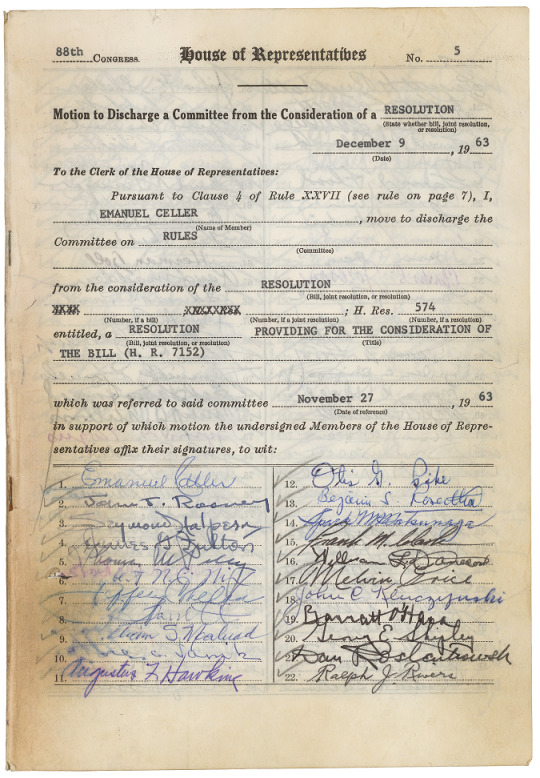
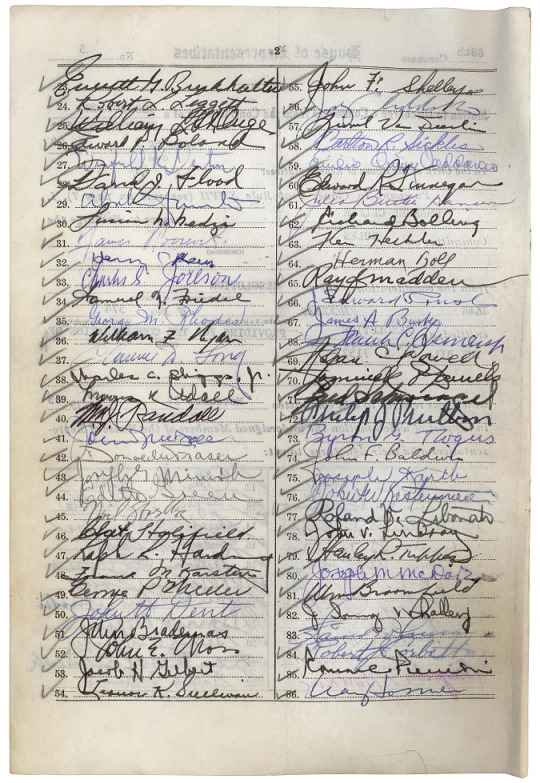
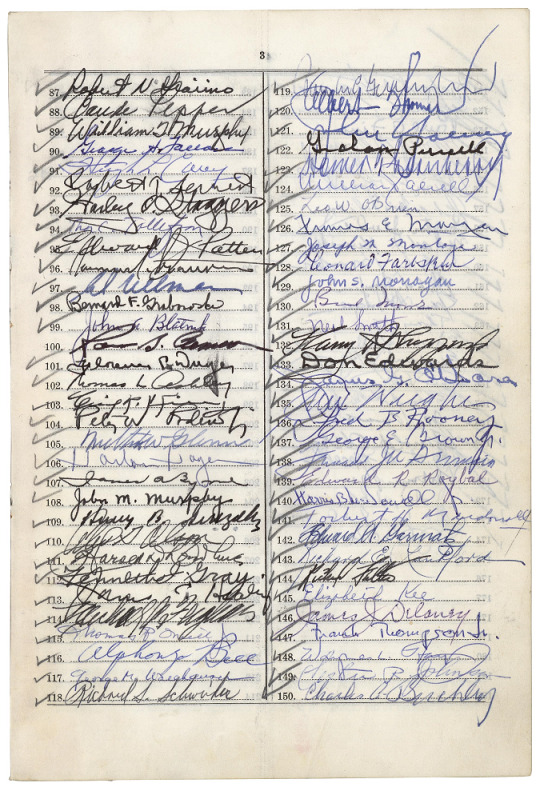

Discharge Petition for H.R. 7152, the Civil Rights Act of 1964
Record Group 233: Records of the U.S. House of RepresentativesSeries: General Records
This item, H.R. 7152, the Civil Rights Act of 1964, faced strong opposition in the House Rules Committee. Howard Smith, Chairman of the committee, refused to schedule hearings for the bill. Emanuel Celler, Chairman of the Judiciary Committee, attempted to use this discharge petition to move the bill out of committee without holding hearings. The petition failed to gain the required majority of Congress (218 signatures), but forced Chairman Smith to schedule hearings.
88th CONGRESS. House of Representatives No. 5 Motion to Discharge a Committee from the Consideration of a RESOLUTION (State whether bill, joint resolution, or resolution) December 9, 1963 To the Clerk of the House of Representatives: Pursuant to Clause 4 of Rule XXVII (see rule on page 7), I EMANUEL CELLER (Name of Member), move to discharge to the Commitee on RULES (Committee) from the consideration of the RESOLUTION; H. Res. 574 entitled, a RESOLUTION PROVIDING FOR THE CONSIDERATION OF THE BILL (H. R. 7152) which was referred to said committee November 27, 1963 in support of which motion the undersigned Members of the House of Representatives affix their signatures, to wit: 1. Emanuel Celler 2. John J. Rooney 3. Seymour Halpern 4. James G Fulton 5. Thomas W Pelly 6. Robt N. C. Nix 7. Jeffery Cohelan 8. W A Barrett 9. William S. Mailiard 10. 11. Augustus F. Hawkins 12. Otis G. Pike 13. Benjamin S Rosenthal 14. Spark M Matsunaga 15. Frank M. Clark 16. William L Dawson 17. Melvin Price 18. John C. Kluczynski 19. Barratt O'Hara 20. George E. Shipley 21. Dan Rostenkowski 22. Ralph J. Rivers[page] 2 23. Everett G. Burkhalter 24. Robert L. Leggett 25. William L St Onge 26. Edward P. Boland 27. Winfield K. Denton 28. David J. Flood 29. 30. Lucian N. Nedzi 31. James Roosevelt 32. Henry C Reuss 33. Charles S. Joelson 34. Samuel N. Friedel 35. George M. Rhodes 36. William F. Ryan 37. Clarence D. Long 38. Charles C. Diggs Jr 39. Morris K. Udall 40. Wm J. Randall 41. 42. Donald M. Fraser 43. Joseph G. Minish 44. Edith Green 45. Neil Staebler 46. 47. Ralph R. Harding 48. Frank M. Karsten 49. 50. John H. Dent 51. John Brademas 52. John E. Moss 53. Jacob H. Gilbert 54. Leonor K. Sullivan 55. John F. Shelley 56. 57. Lionel Van Deerlin 58. Carlton R. Sickles 59. 60. Edward R. Finnegan 61. Julia Butler Hansen 62. Richard Bolling 63. Ken Heckler 64. Herman Toll 65. Ray J Madden 66. J Edward Roush 67. James A. Burke 68. Frank C. Osmers Jr 69. Adam Powell 70. 71. Fred Schwengel 72. Philip J. Philiben 73. Byron G. Rogers 74. John F. Baldwin 75. Joseph Karth 76. 77. Roland V. Libonati 78. John V. Lindsay 79. Stanley R. Tupper 80. Joseph M. McDade 81. Wm Broomfield 82. 83. 84. Robert J Corbett 85. 86. Craig Hosmer87. Robert N. Giaimo 88. Claude Pepper 89. William T Murphy 90. George H. Fallon 91. Hugh L. Carey 92. Robert T. Secrest 93. Harley O. Staggers 94. Thor C. Tollefson 95. Edward J. Patten 96. 97. Al Ullman 98. Bernard F. Grabowski 99. John A. Blatnik 100. 101. Florence P. Dwyer 102. Thomas L. ? 103. 104. Peter W. Rodino 105. Milton W. Glenn 106. Harlan Hagen 107. James A. Byrne 108. John M. Murphy 109. Henry B. Gonzalez 110. Arnold Olson 111. Harold D Donahue 112. Kenneth J. Gray 113. James C. Healey 114. Michael A Feighan 115. Thomas R. O'Neill 116. Alphonzo Bell 117. George M. Wallhauser 118. Richard S. Schweiker 119. 120. Albert Thomas 121. 122. Graham Purcell 123. Homer Thornberry 124. 125. Leo W. O'Brien 126. Thomas E. Morgan 127. Joseph M. Montoya 128. Leonard Farbstein 129. John S. Monagan 130. Brad Morse 131. Neil Smith 132. Harry R. Sheppard 133. Don Edwards 134. James G. O'Hara 135. 136. Fred B. Rooney 137. George E. Brown Jr. 138. 139. Edward R. Roybal 140. Harris. B McDowell jr. 141. Torbert H. McDonall 142. Edward A. Garmatz 143. Richard E. Lankford 144. Richard Fulton 145. Elizabeth Kee 146. James J. Delaney 147. Frank Thompson Jr 148. 149. Lester R. Johnson 150. Charles A. Buckley4 151. Richard T. Hanna 152. James Corman 153. Paul A Fino 154. Harold M. Ryan 155. Martha W. Griffiths 156. Adam E. Konski 157. Chas W. Wilson 158. Michael J. Kewan 160. Alex Brooks 161. Clark W. Thompson 162. John D. Gringell [?] 163. Thomas P. Gill 164. Edna F. Kelly 165. Eugene J. Keogh 166 John. B. Duncan 167. Elmer J. Dolland 168. Joe Caul 169. Arnold Olsen 170. Monte B. Fascell [?] 171. [not deciphered] 172. J. Dulek 173. Joe W. [undeciphered] 174. J. J. Pickle [Numbers 175 through 214 are blank]
33 notes
·
View notes
Text
💖 Sapphic Books Coming Out May 2024
🩷 There's something especially sweet about a sapphic romance. Here are only a few of the amazing sapphic books hitting shelves in May 2024. Which ones are you adding to your ever-growing TBR?
Contemporary 💖 Here For the Wrong Reasons - Annabel Paulsen & Lydia Wang 💖 Perfume & Pain - Anna Dorn 💖 Cheryl - Jillian Fleck 💖 A Little Kissing Between Friends - Chencia C. Higgins 💖 Lavash At First Sight - Taleen Voskuni 💖 The Game of Giants - Marion Douglas 💖 We Were the Universe - Kimberly King Parsons 💖 Oye - Melissa Mogollon 💖 The Summer Love Strategy - Ray Stoeve 💖 Noah Frye Gets Crushed - Maggie Horne 💖 Halfway to Harbor - Nicole Melleby 💖 Sunhead - Alex Assan
💖 The 7-10 Split - Karmen Lee 💖 Trust & Safety - Laura Blackett & Eve Gleichman 💖 Second Night Stand - Karelia Stetz-Waters & Fay Stetz-Waters 💖 How It Works Out - Myriam Lacroix 💖 April May June July - Alison B. Hart 💖 The Ride of Her Life - Jennifer Dugan 💖 One Night With the CEO - Emily Hayes 💖 Dulhaniyaa - Talia Bhatt 💖 A Girl Can Dream - Emily Barr 💖 I Want You More - Swan Huntley 💖 Exhibit - R. O. Kwon 💖 Only a Bridesmaid - Haley Donnell
💖 Thirsty - Jas Hammonds 💖 Housemates - Emma Copley Eisenberg 💖 Don’t Be a Drag - Skye Quinlan 💖 True Love and Other Impossible Odds - Christina Li 💖 Murray Out of Water - Taylor Tracy 💖 The Redemption of Daya Keane - Gia Gordon 💖 Blame My Virgo Moon - Freja Nicole Woolf 💖 From Where We Are - Nicole Zelniker 💖 Cabin Fever - Tagan Shepard 💖 Channel Surfing in the Sea of Happiness - Guy Babineau 💖 Meet Me in Berlin - Samantha L. Valentine 💖 Behind You - Catherine Hernandez
Paranormal/Horror 💖 Primal Hunt - L.L. Raand 💖 Blood on the Tide - Katee Robert 💖 We Mostly Come Out at Night - (ed) Rob Costello 💖 Flowers from the Void - Gianni Washington 💖 My Darling Dreadful Thing - Johanna van Veen 💖 When the Devil - Emma E. Murray 💖 Honeybites - I. S. Belle 💖 My Favorite Thing Is Monsters - Emil Ferris 💖 The Worst Perfect Moment -Shivaun Plozza
Fantasy 💖 The Honey Witch - Sydney J. Shields 💖 The Fireborne Blade - Charlotte Bond 💖 Chained Destinies - D. Jordan Redhawk 💖 Can’t Spell Treason Without Tea - Rebecca Thorne 💖 Grand Slam Romance: Major League Hotties - Ollie Hicks & Emma Oosterhous 💖 Snake Charming - Genevieve McCluer 💖 The Witches of Silverlake - Simon Curtis 💖 Death’s Country - R. M. Romero 💖 Snowblooded - Emma Sterner-Radleygh 💖 Bird Suit - Sydney Hegele 💖 Farzana's Spite - Felix Graves
Historical 💖 The Good Women of Fudi - Liu Hong 💖 Spitting Gold - Carmella Lowkis 💖 Adrift - Sam Ledel 💖 A Heart Divided - Angie Williams 💖 A Liaison with Her Leading Lady - Lotte R. James
Mystery/Thriller 💖 The Deadly Spark - Roxie Key 💖 The Advice Columnist - Cade Haddock Strong 💖 The Lilies - Quinn Diacon-Furtado 💖 Loyalty - E. J. Noyes 💖 Clean Kill - Anne Laughlin 💖 Have You Seen This Girl - Nita Tyndall 💖 The Last to Pie - Misha Popp
Sci-Fi 💖 The Sunforge - Sascha Stronach 💖 Road to Ruin - Hana Lee 💖 Exile in Guyville - Amy Lee Lillard 💖 The Lily of Enarah - Arden Brax 💖 The Z Word - Lindsay King-Miller
#sapphic books#sapphic romance#queer books#lesbian romance#lesbian books#bi books#bisexuality#lesbian fiction#lesbian#batty about books#battyaboutbooks#books
14 notes
·
View notes